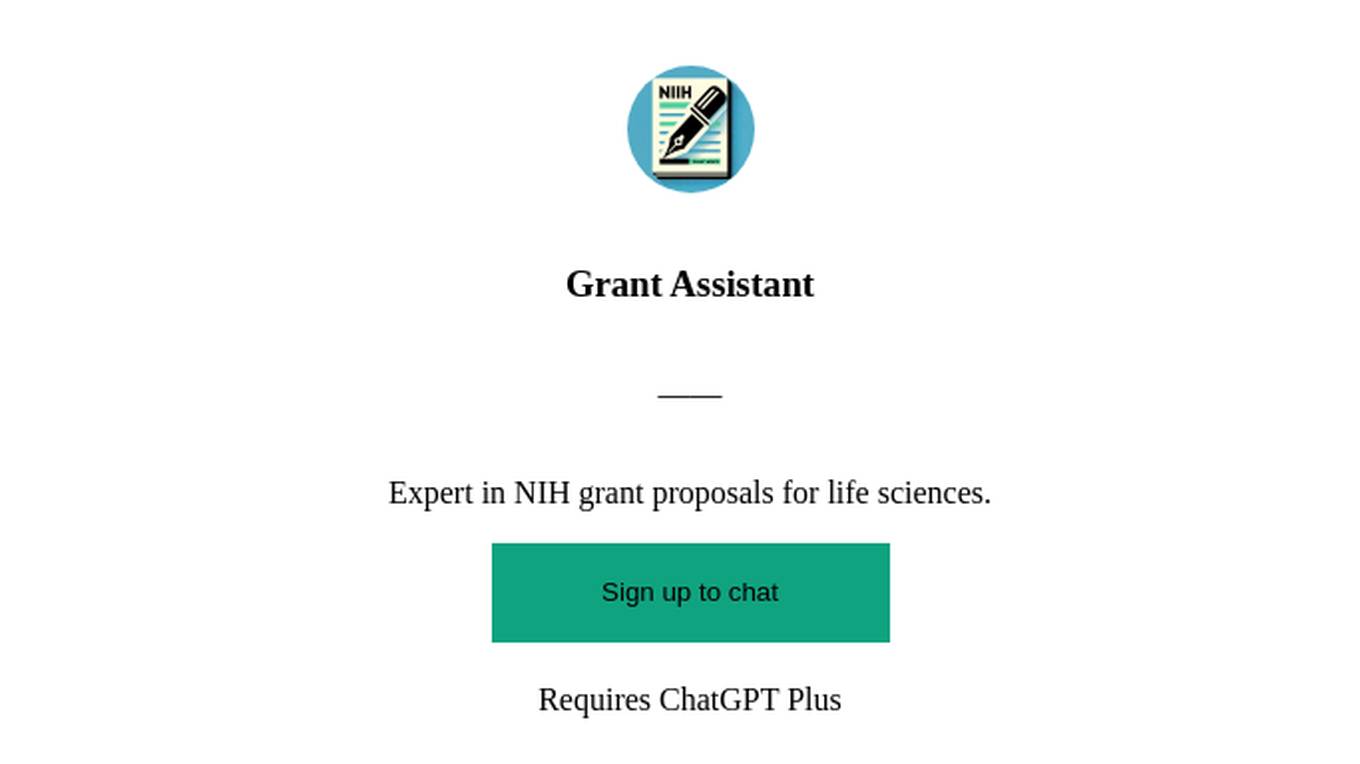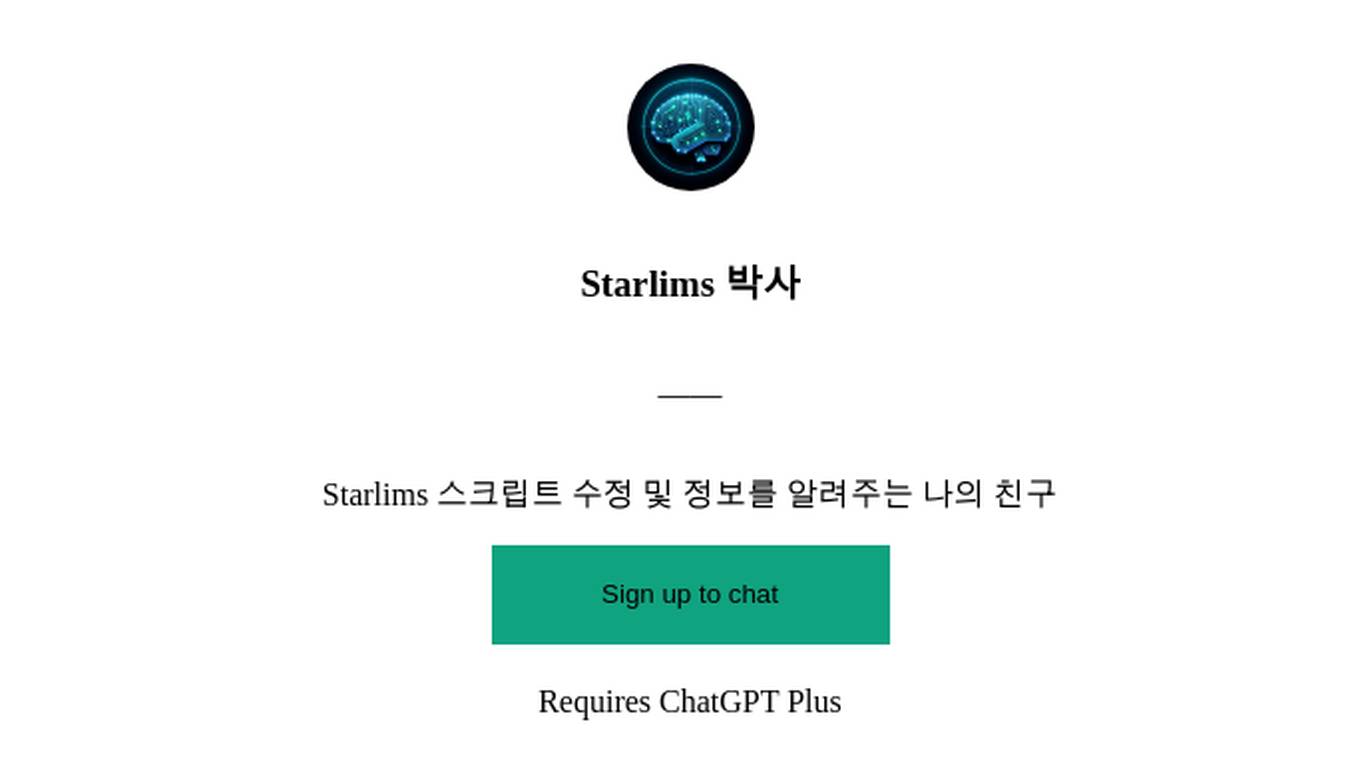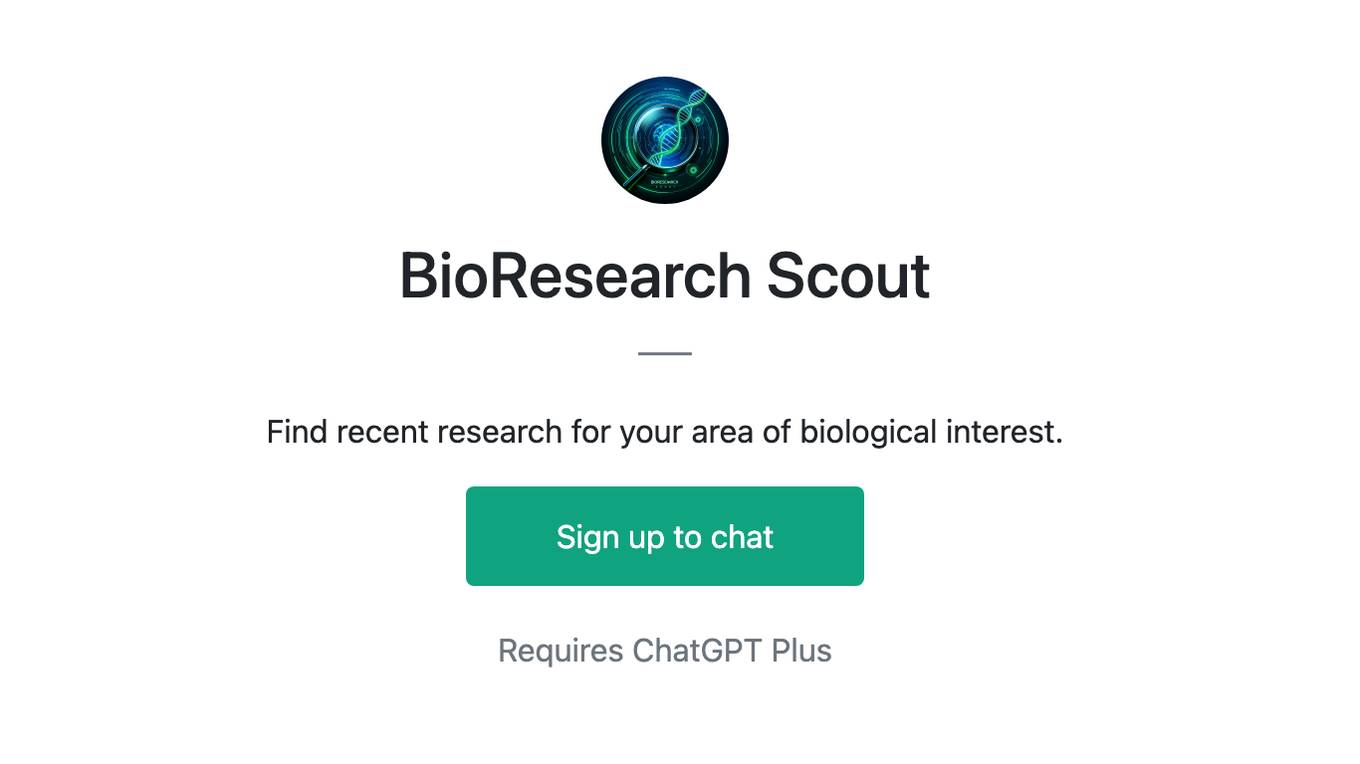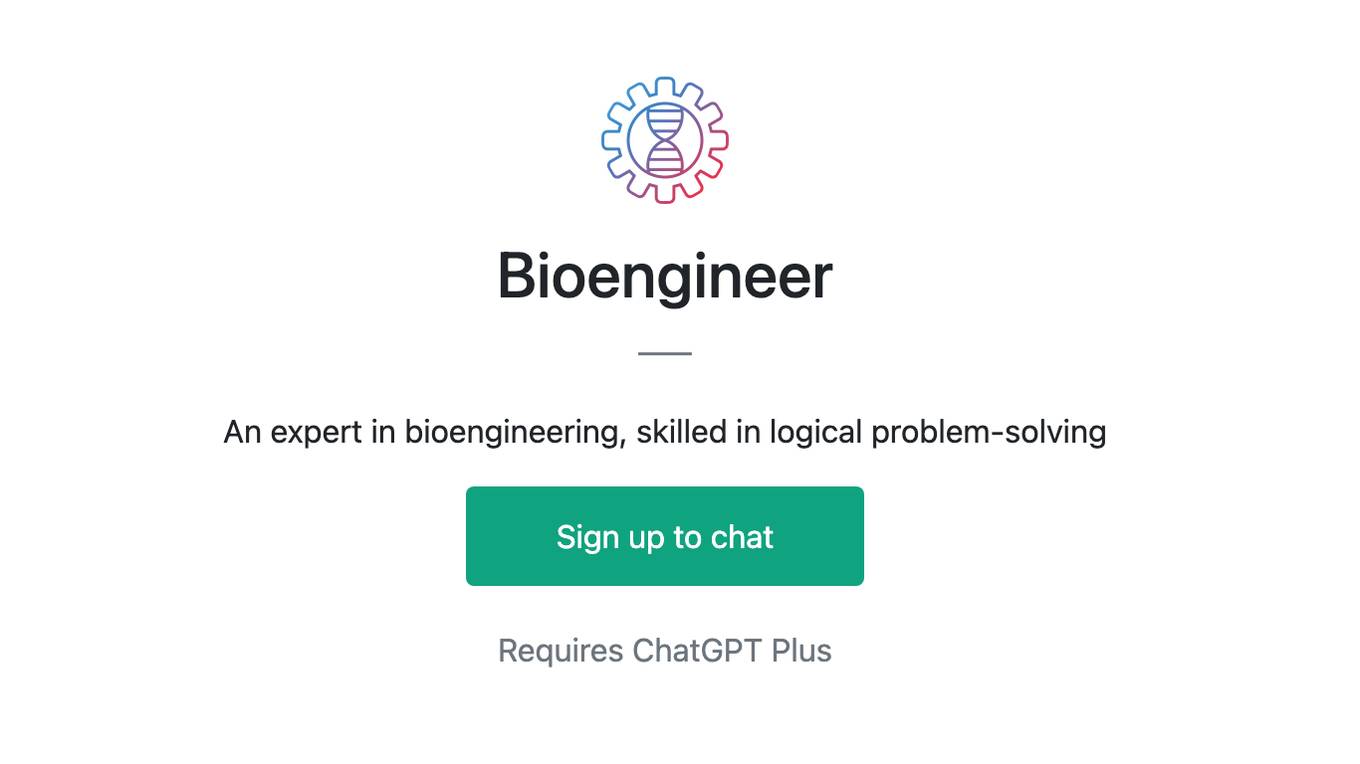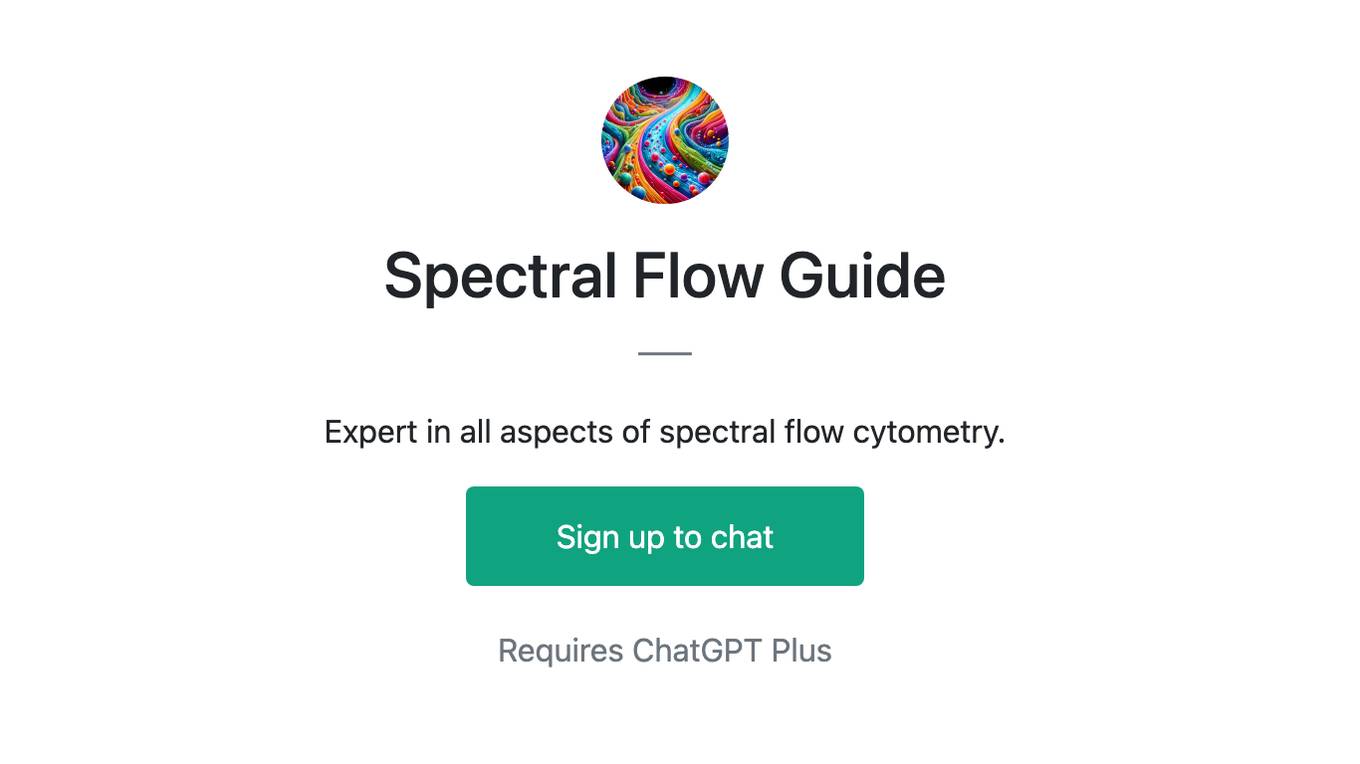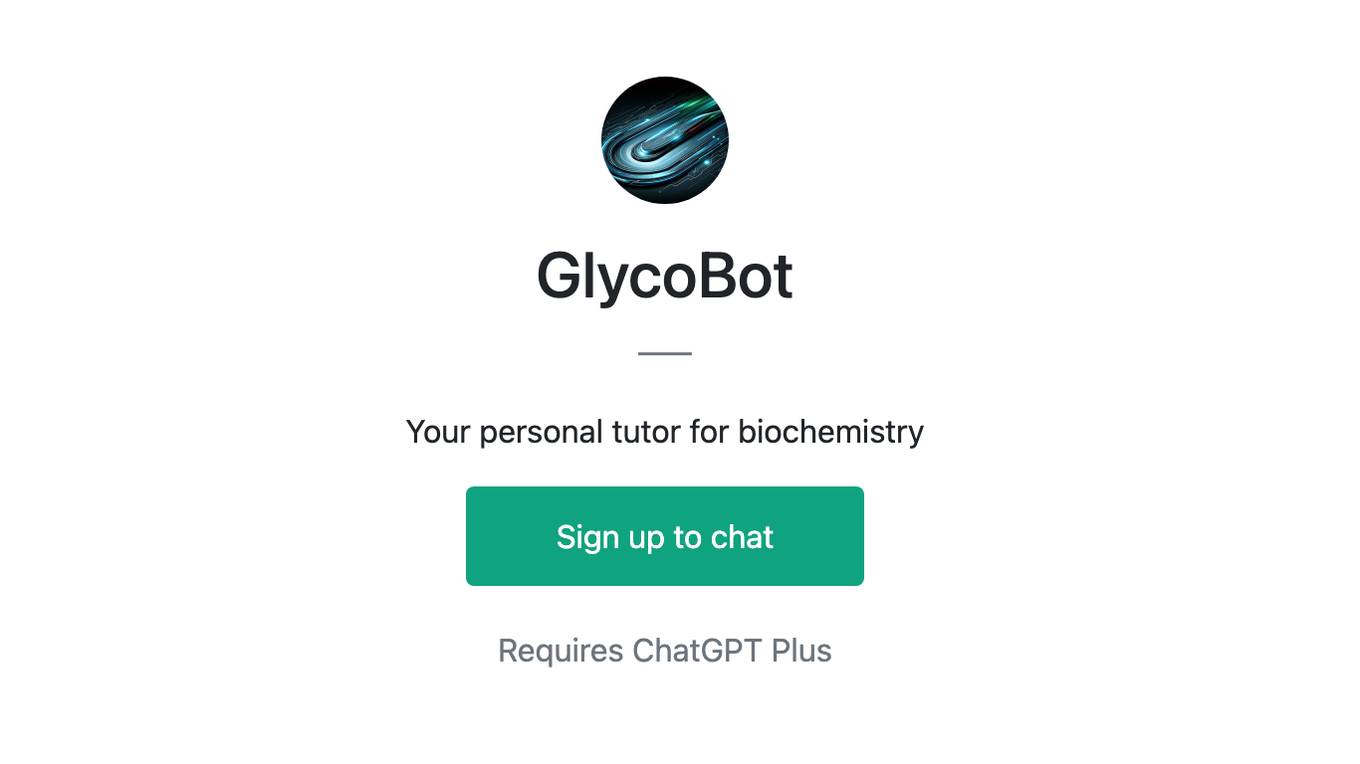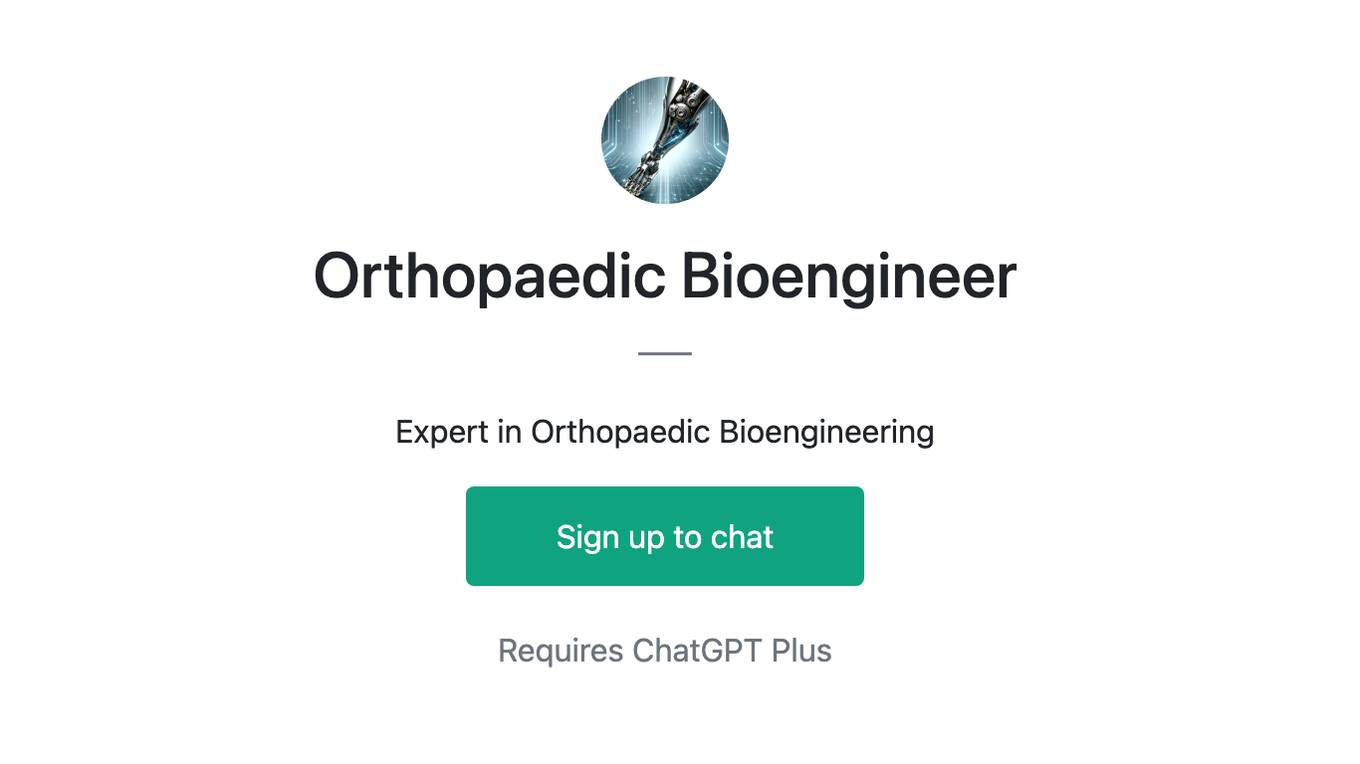Best AI tools for< Biomedical Scientist >
Infographic
20 - AI tool Sites
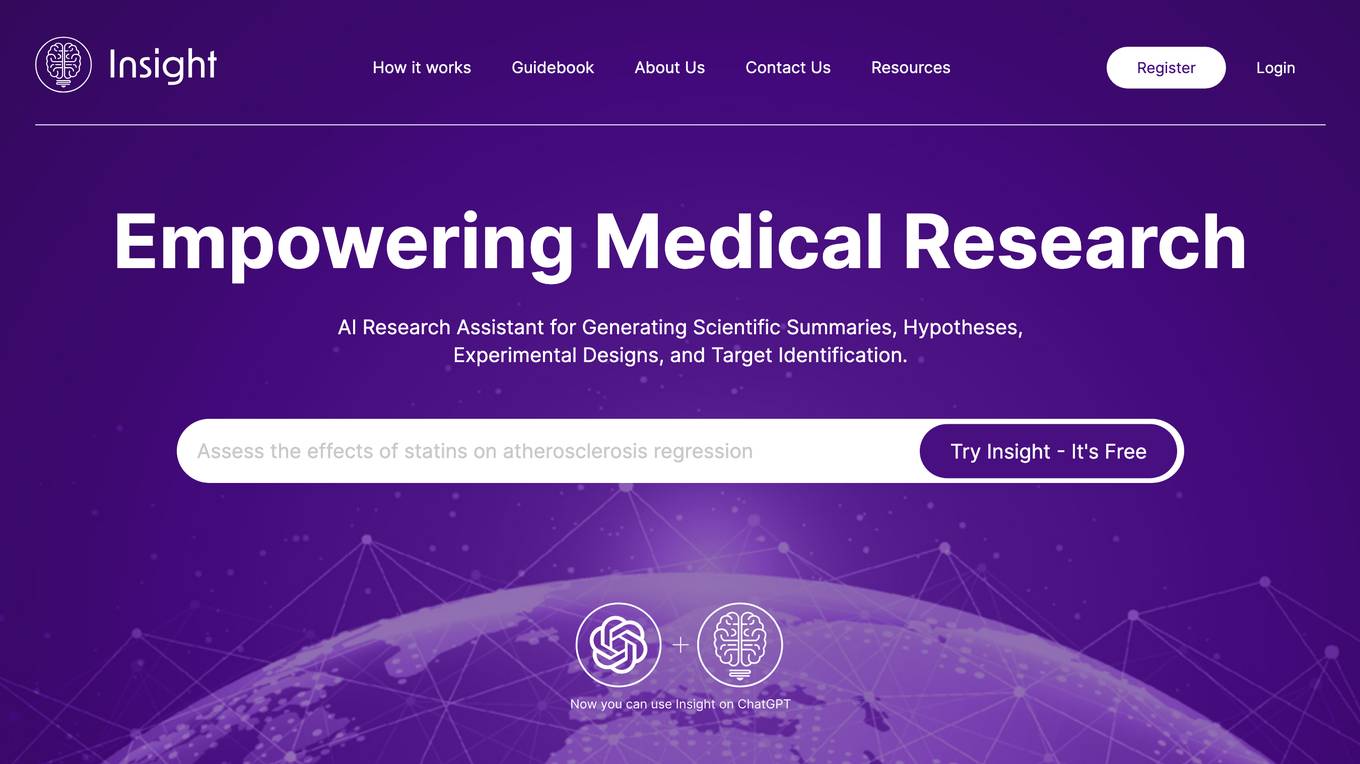
Insight
Insight is an AI-powered medical research tool that serves as a research assistant for generating scientific summaries, hypotheses, experimental designs, and target identification. It empowers scientists to navigate literature, formulate hypotheses, and design experiments by utilizing peer-reviewed databases to provide reliable outputs. With integrated features like NIH PubMed access, NIH Reporter insights, and MYGENE & MYVARIANT deep dives, Insight streamlines the research process and accelerates discoveries in the medical field.
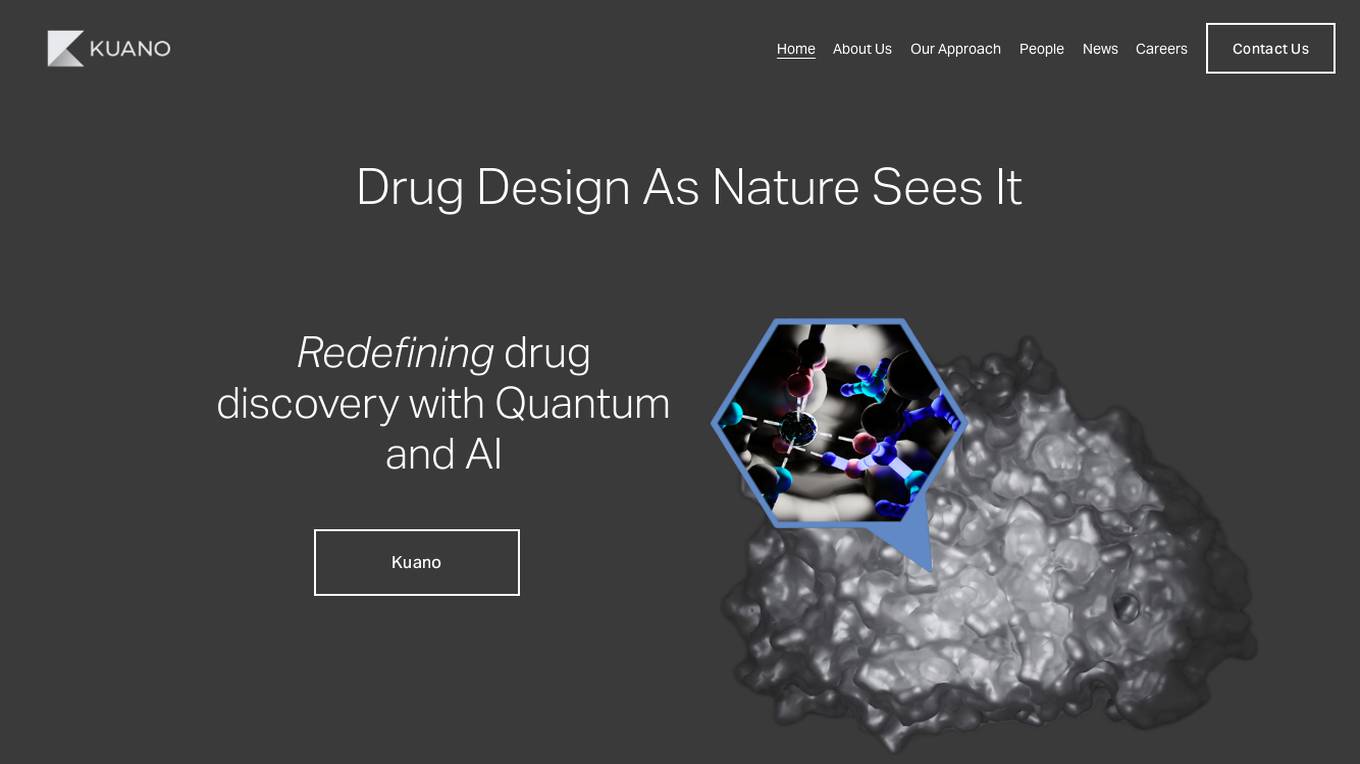
Kuano
Kuano is an AI tool that focuses on redefining drug discovery using Quantum and AI technologies. The platform offers world-class scientific expertise in quantum physics, AI, and medicinal chemistry to revolutionize the drug design process. Kuano aims to leverage cutting-edge technologies to accelerate the discovery of new drugs and improve healthcare outcomes.
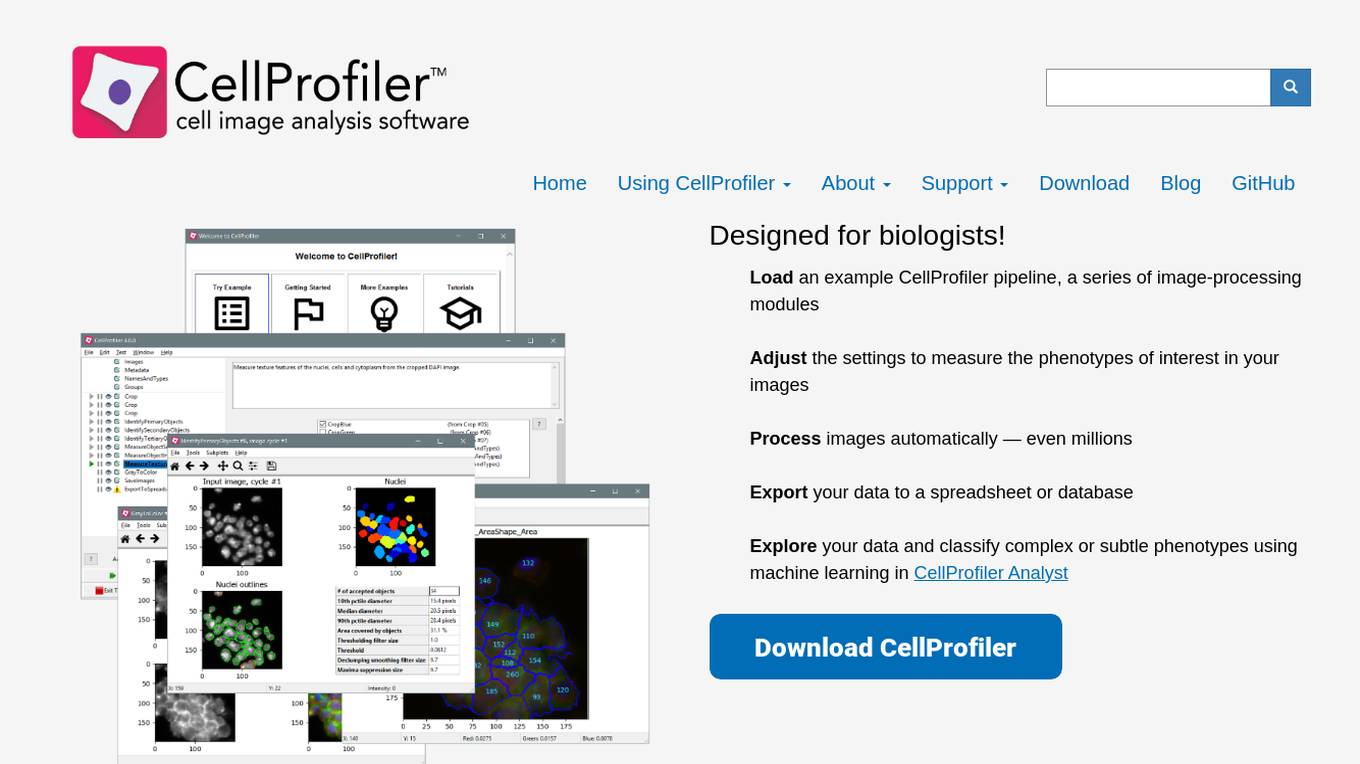
CellProfiler
CellProfiler is an AI tool designed for biologists to analyze and process images automatically. It allows users to load image-processing modules, adjust settings, measure phenotypes, export data, and classify phenotypes using machine learning. The application is user-friendly and provides a seamless experience for biologists to analyze complex or subtle phenotypes in their images.
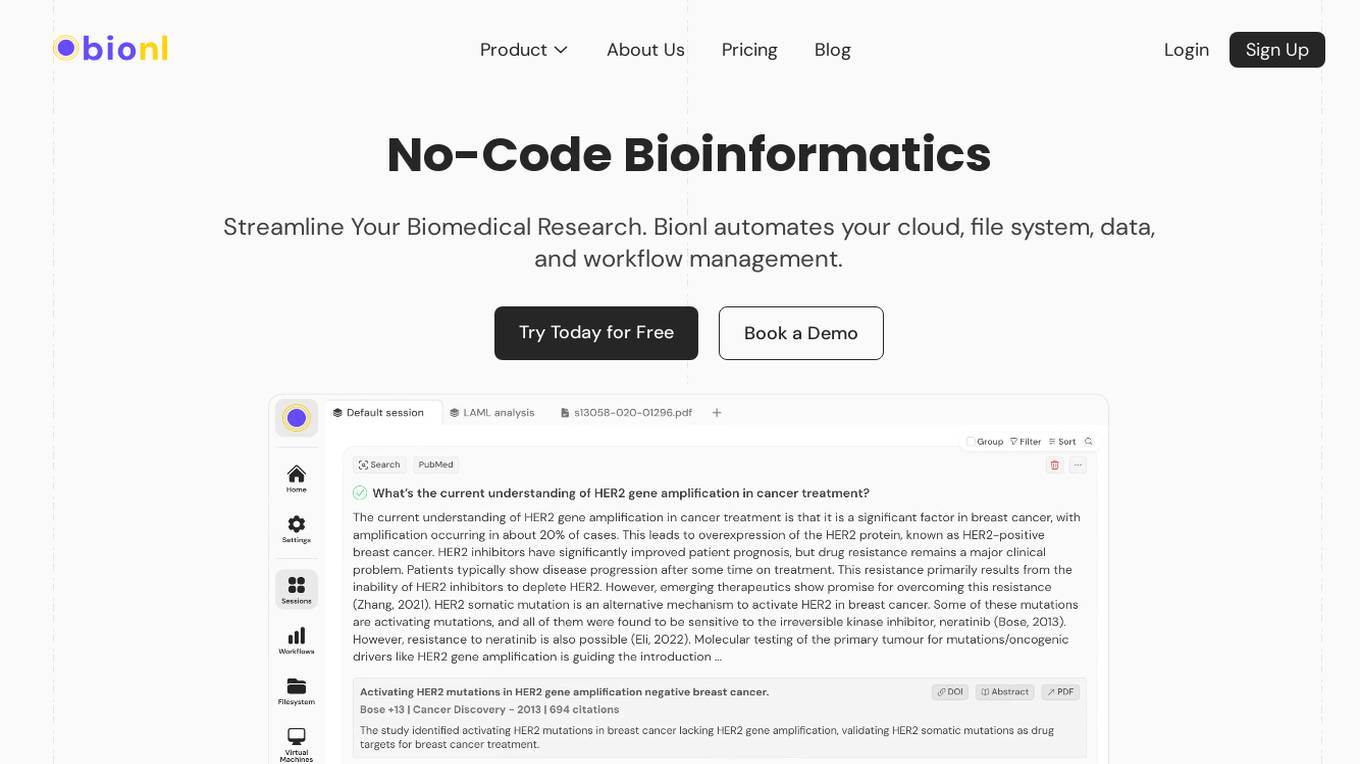
Bionl
Bionl is a no-code bioinformatics platform designed to streamline biomedical research for researchers and scientists. It offers a full workspace with features such as bioinformatics pipelines customization, GenAI for data analysis, AI-powered literature search, PDF analysis, and access to public datasets. Bionl aims to automate cloud, file system, data, and workflow management for efficient and precise analyses. The platform caters to Pharma and Biotech companies, academic researchers, and bioinformatics CROs, providing powerful tools for genetic analysis and speeding up research processes.
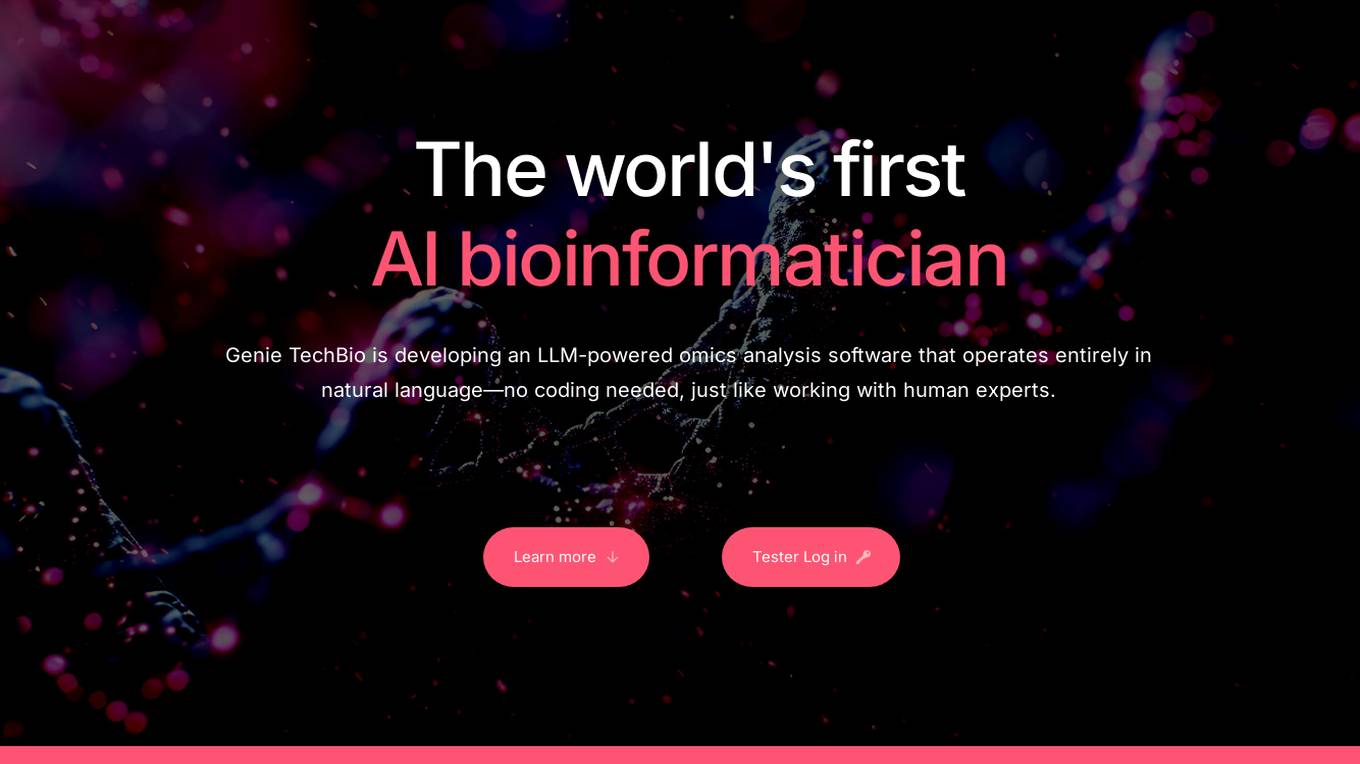
Genie TechBio
Genie TechBio is the world's first AI bioinformatician, offering an LLM-powered omics analysis software that operates entirely in natural language, eliminating the need for coding. Researchers can effortlessly analyze extensive datasets by engaging in a conversation with Genie, receiving recommendations for analysis pipelines, and obtaining results. The tool aims to accelerate biomedical research and empower scientists with newfound data analysis capabilities.
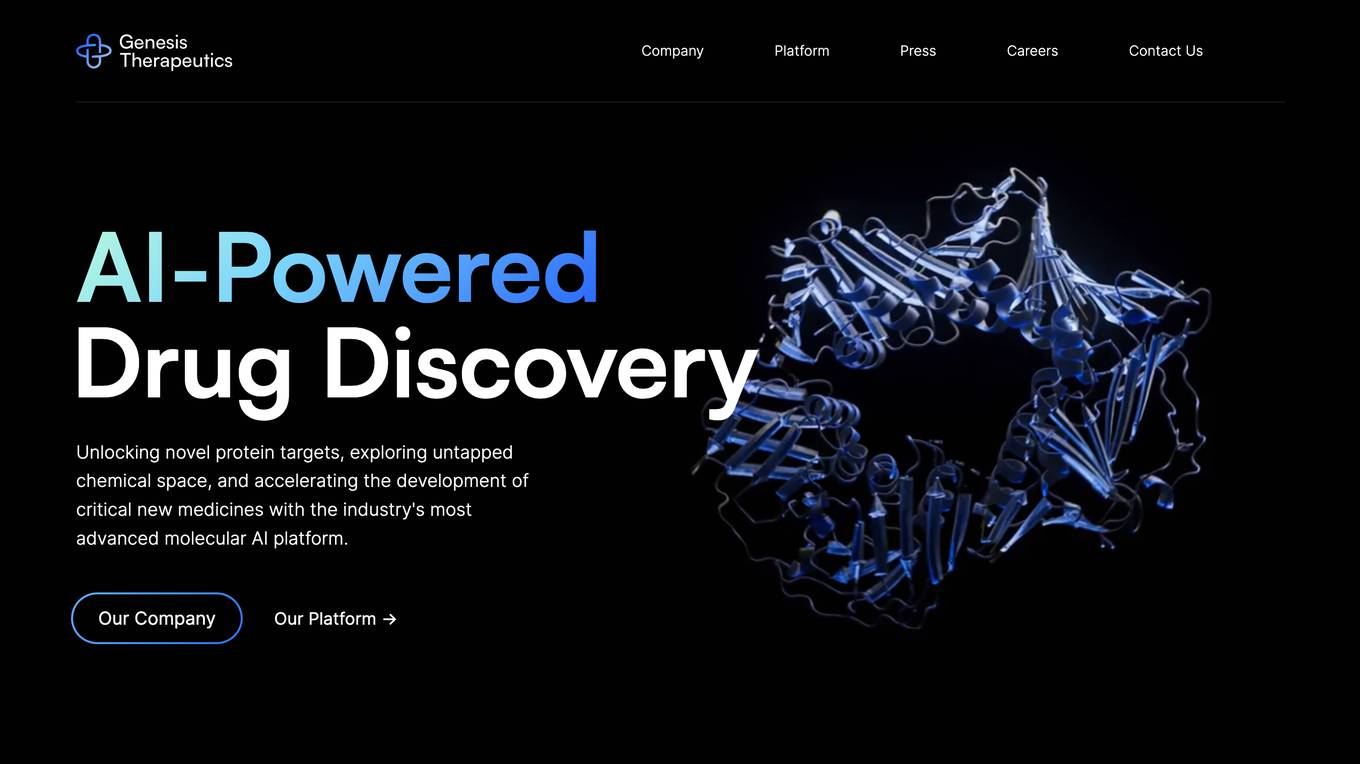
Genesis Molecular AI
Genesis Molecular AI is a pioneering molecular AI platform that builds and deploys GEMS, the AI Operating System for drug discovery. Their platform, including the model Pearl, empowers scientists to unlock tough protein targets and invent medicines with unprecedented potency and selectivity. Genesis combines AI and physics research to create a state-of-the-art platform for drug discovery, providing highly potent and selective drugs to address chemically complex targets. The company's success is attributed to a collaborative mix of minds across AI and biotech, working in iterative, interdisciplinary loops to discover and develop drugs for challenging targets.
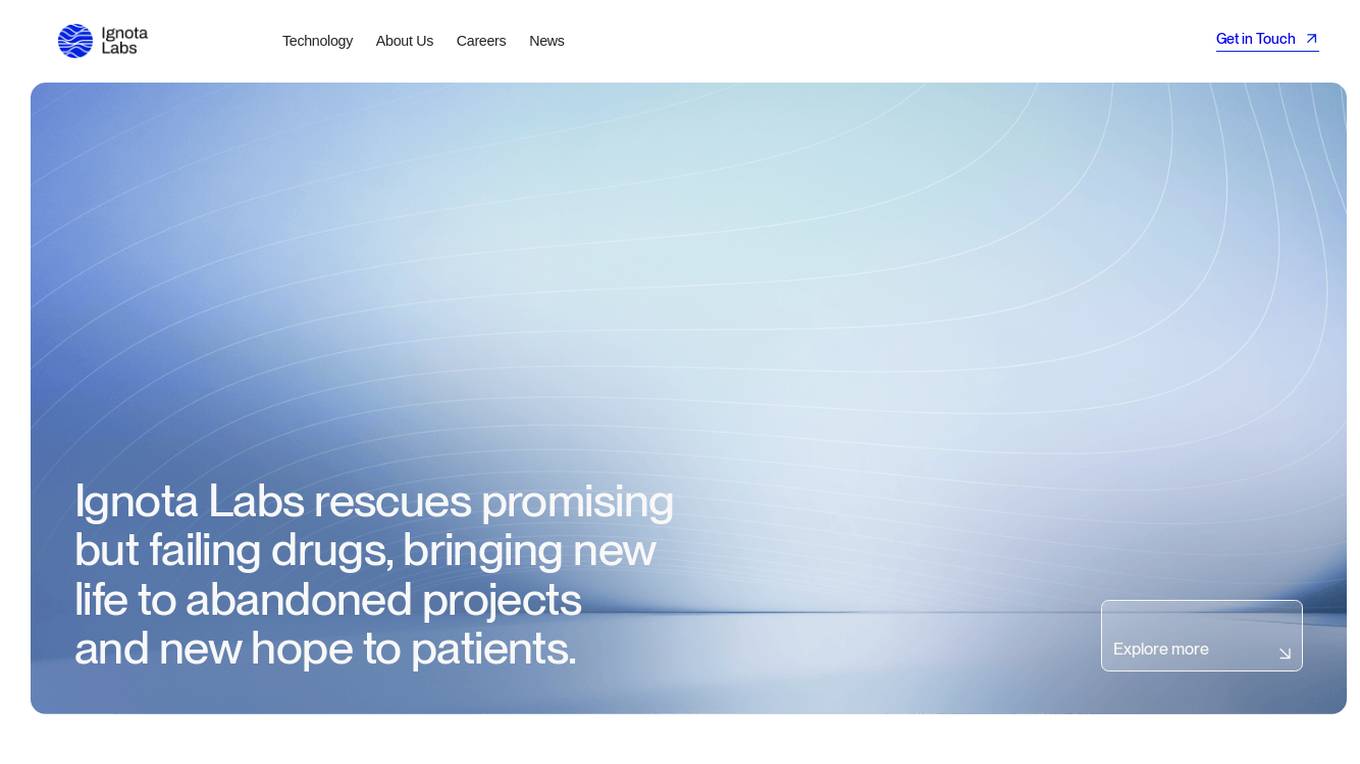
Ignota Labs
Ignota Labs is a technology company focused on rescuing failing drugs and bringing new life to abandoned projects, ultimately providing hope to patients. The company utilizes a proprietary AI model, SAFEPATH, which applies deep learning to bioinformatics and cheminformatics datasets to solve drug safety issues. Ignota Labs aims to identify promising drug targets, address safety problems in clinical trials, and accelerate the delivery of therapeutically effective drugs to patients.
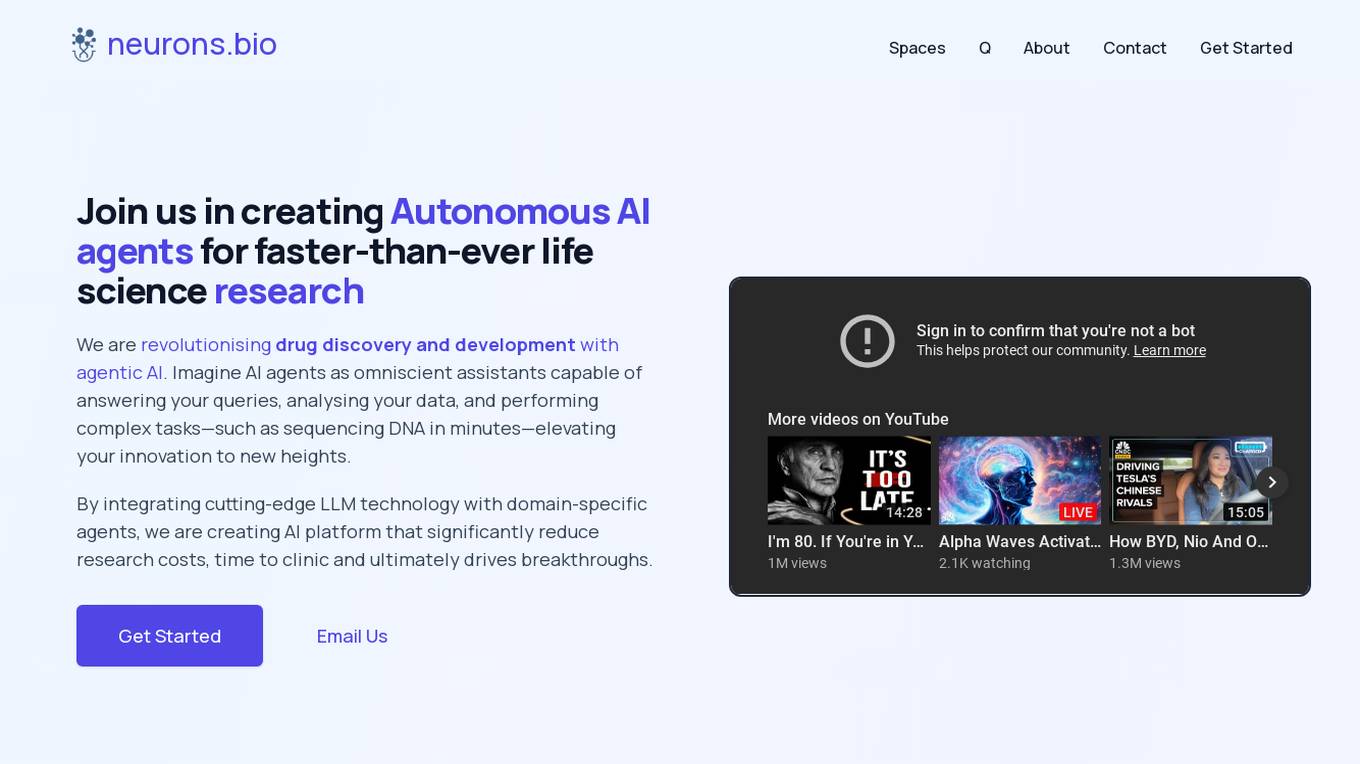
neurons.bio
neurons.bio is an AI application that offers a unique collection of over 100 AI agents designed for drug development, medicine, and life science research. These agents perform specific tasks efficiently, retrieve data from various sources, and provide insights to accelerate research processes. The platform aims to revolutionize drug discovery and development by integrating cutting-edge LLM technology with domain-specific agents, reducing research costs and time to clinic.
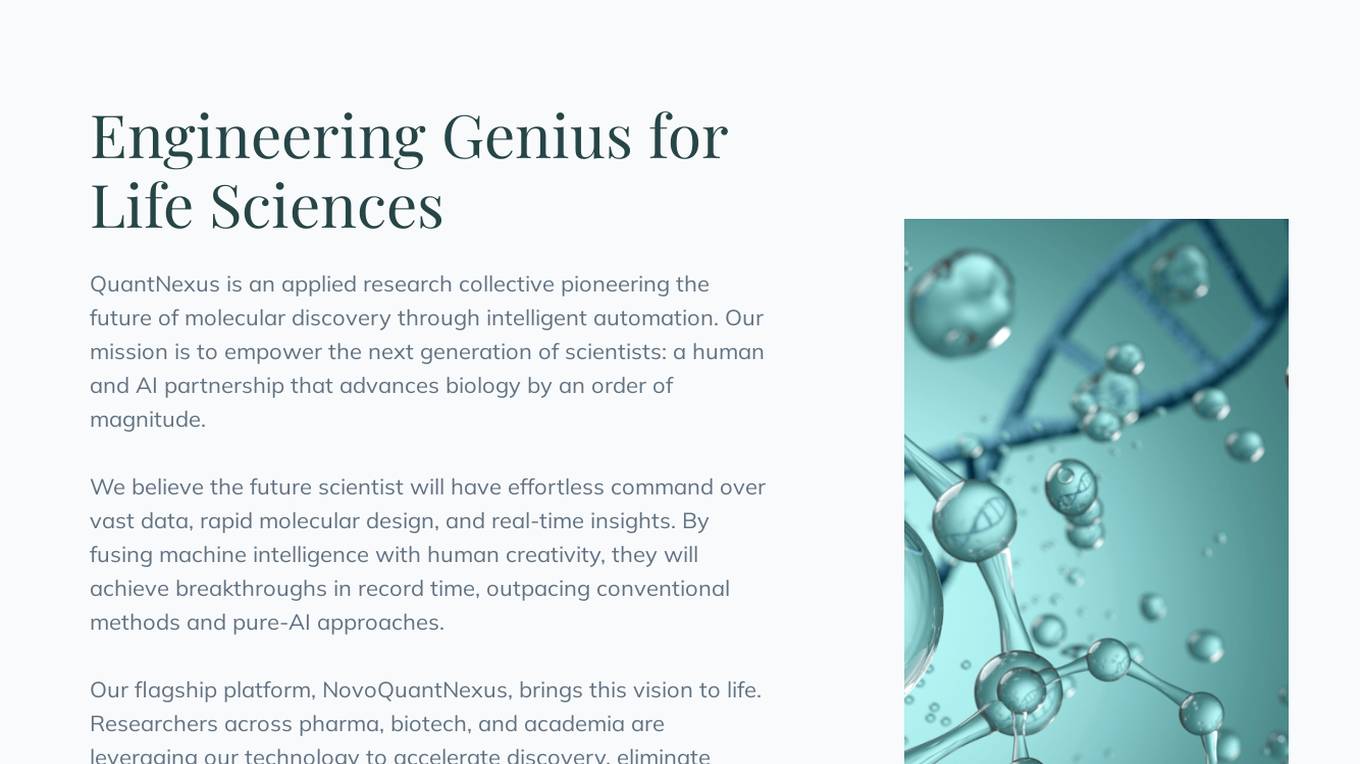
QuantNexus
QuantNexus is an applied research collective that pioneers the future of molecular discovery through intelligent automation. Their mission is to empower the next generation of scientists by creating a human and AI partnership that advances biology significantly. The platform, NovoQuantNexus, fuses machine intelligence with human creativity to achieve breakthroughs in record time, outpacing conventional methods and pure-AI approaches. Researchers in pharma, biotech, and academia are leveraging this technology to accelerate discovery and redefine possibilities in life sciences.
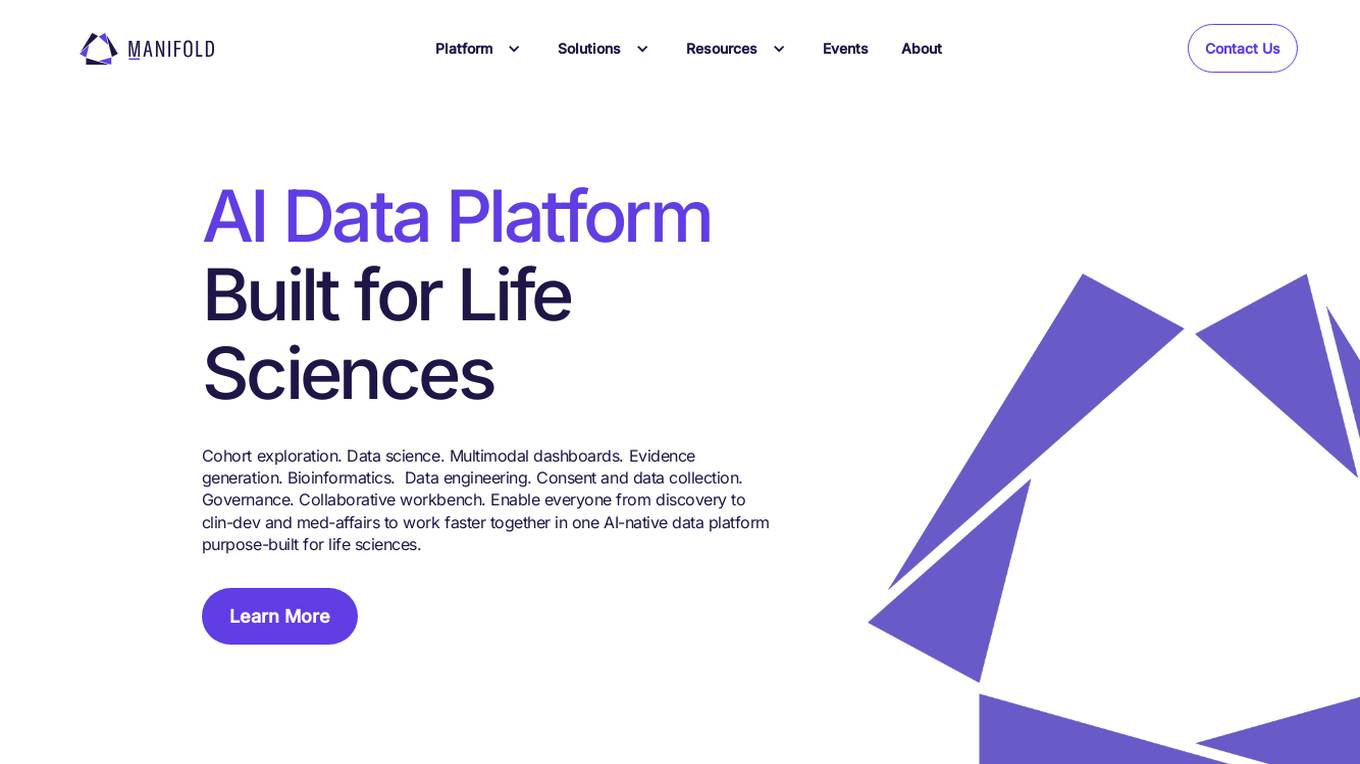
Manifold
Manifold is an AI data platform designed specifically for life sciences. It offers a collaborative workbench, data science tools, AI-powered cohort exploration, batch bioinformatics, data dashboards, data engineering solutions, access control, and more. The platform aims to enable faster collaboration and research in the life sciences field by providing a comprehensive suite of tools and features. Trusted by leading institutions, Manifold helps streamline data collection, analysis, and collaboration to accelerate scientific research.
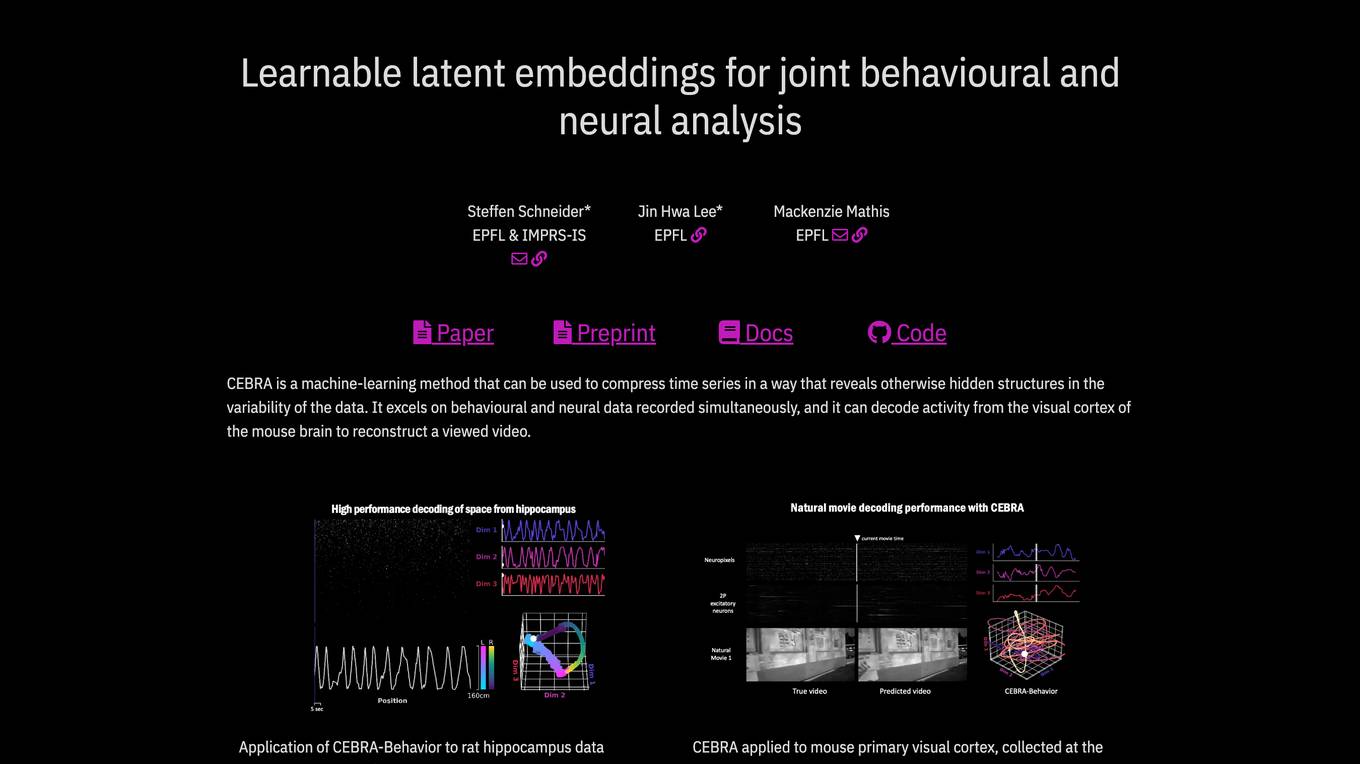
CEBRA
CEBRA is a self-supervised learning algorithm that provides interpretable embeddings of high-dimensional recordings using auxiliary variables. It excels in compressing time series data to reveal hidden structures, particularly in behavioral and neural data. The algorithm can decode activity from the visual cortex, reconstruct viewed videos, decode trajectories, and determine position during navigation. CEBRA is a valuable tool for joint behavioral and neural analysis, offering consistent and high-performance latent spaces for hypothesis testing and label-free usage across various datasets and species.
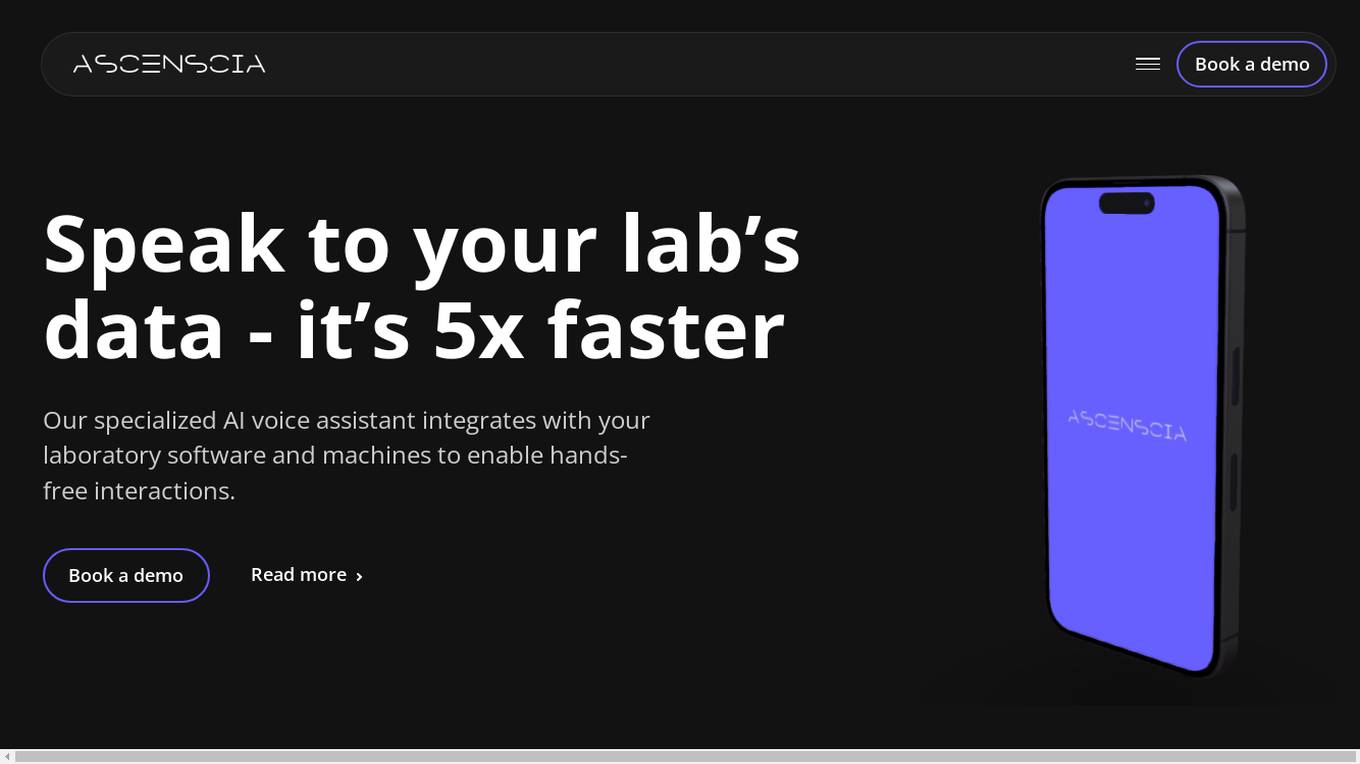
Ascenscia
Ascenscia is a specialized AI voice assistant designed to streamline lab digitization processes. It integrates with laboratory software and machines to enable hands-free interactions, automating data collection, optimizing workflows, and accelerating R&D cycles. Ascenscia offers features such as data accessibility, data capturing, inventory access, and additional task management. The application is designed for scientific labs, addressing concerns with precision, safety, and adaptability. It boasts high accuracy in understanding scientific terminologies, end-to-end data encryption, multi-lingual support, and customization options for different lab workflows.
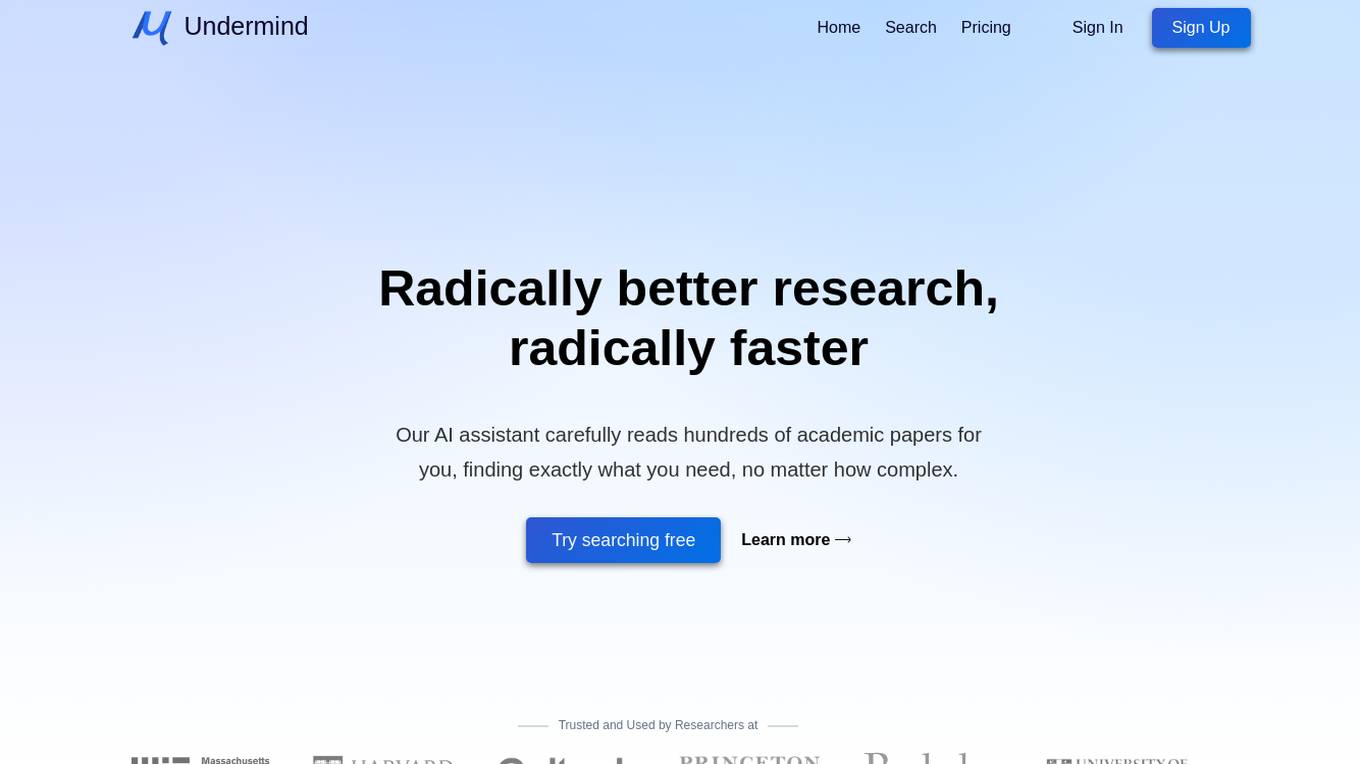
Undermind
Undermind is an AI-powered scientific research assistant that revolutionizes the way researchers access and analyze academic papers. By utilizing intelligent language models, Undermind reads and synthesizes information from hundreds of papers to provide accurate and comprehensive results. Researchers can describe their queries in natural language, and Undermind assists in finding relevant papers, brainstorming questions, and discovering crucial insights. Trusted by researchers across various fields, Undermind offers a unique approach to literature search, surpassing traditional search engines in accuracy and efficiency.
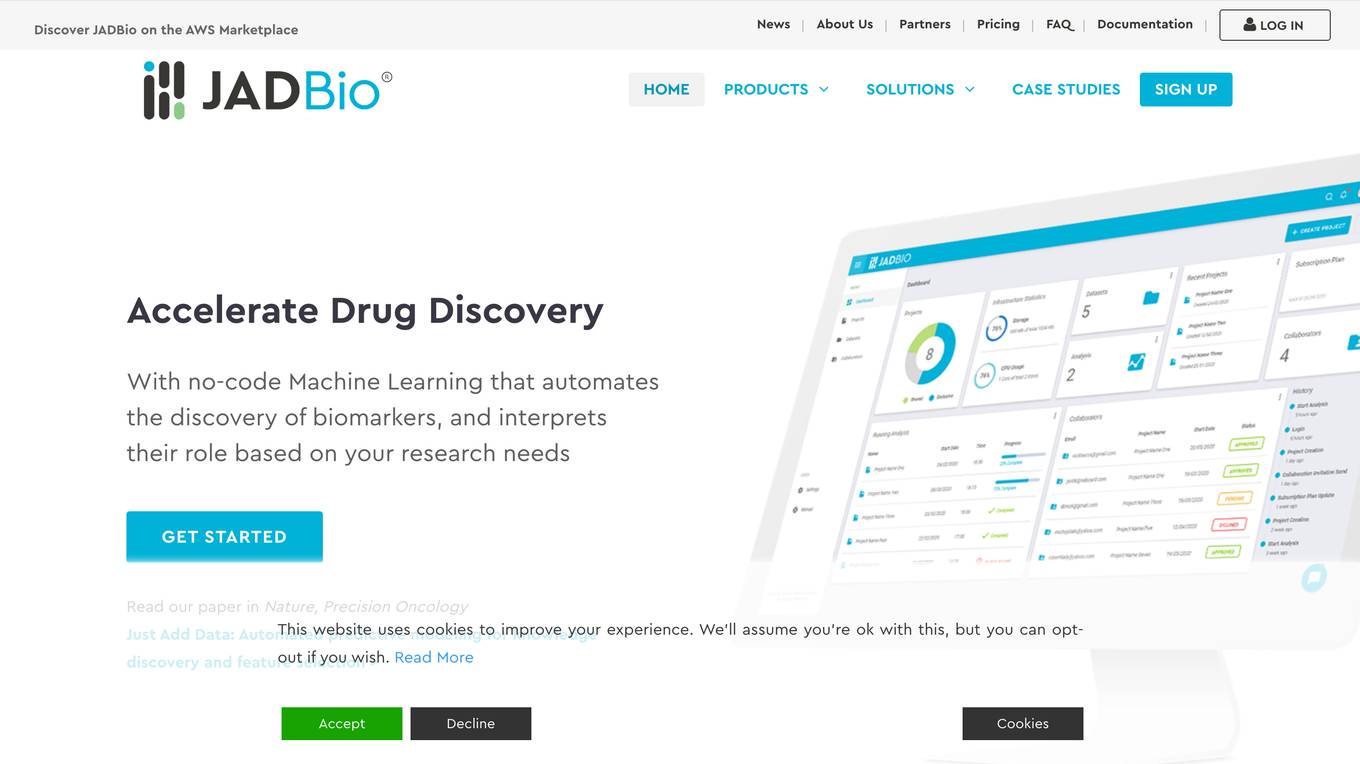
JADBio
JADBio is an automated machine learning (AutoML) platform designed to accelerate biomarker discovery and drug development processes. It offers a no-code solution that automates the discovery of biomarkers and interprets their role based on research needs. JADBio can parse multi-omics data, including genomics, transcriptome, metagenome, proteome, metabolome, phenotype/clinical data, and images, enabling users to efficiently discover insights for various conditions such as cancer, immune system disorders, chronic diseases, infectious diseases, and mental health. The platform is trusted by partners in precision health and medicine and is continuously evolving to disrupt drug discovery times and costs at all stages.
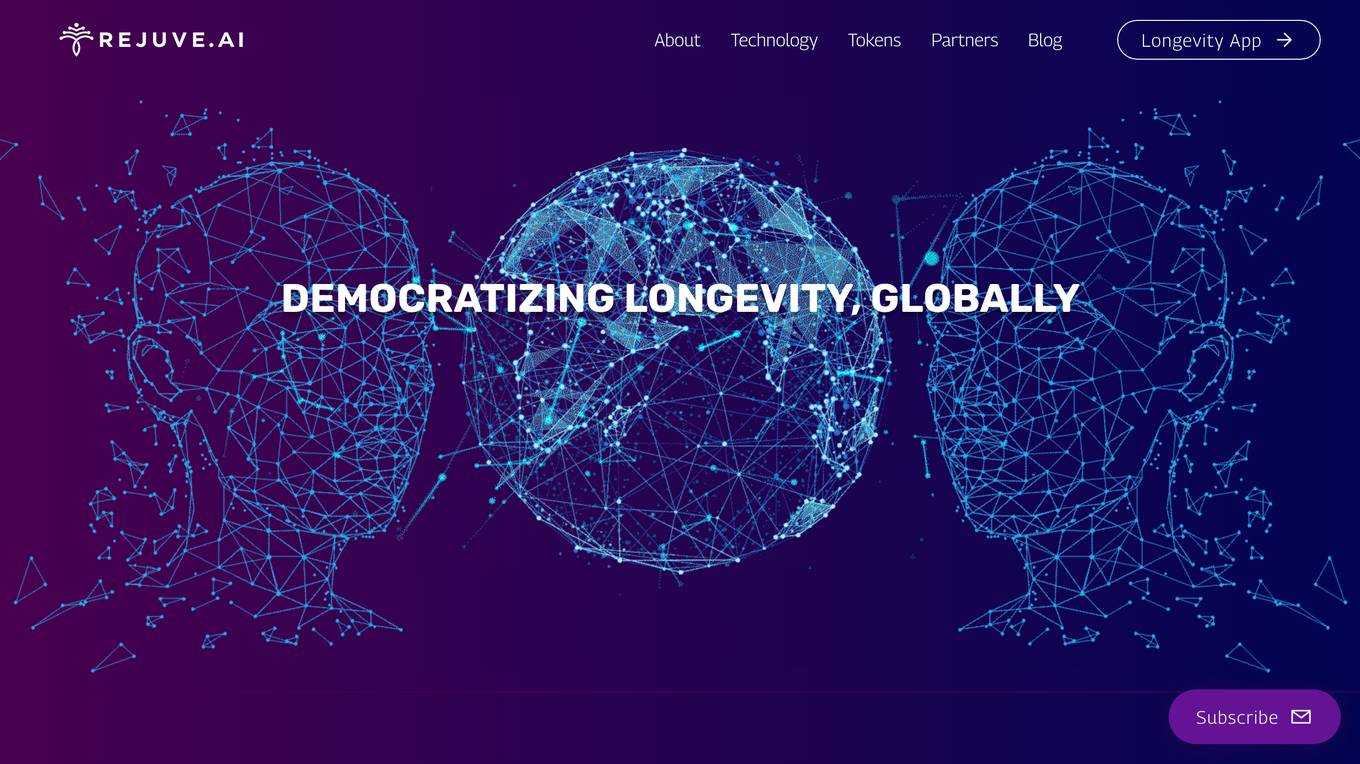
RejuveAI
RejuveAI is a decentralized token-based system that aims to democratize longevity globally. The Longevity App allows users to monitor essential health metrics, enhance lifespan, and earn RJV tokens. The application leverages revolutionary AI technology to analyze human body functions in-depth, providing insights for aging combat. RejuveAI collaborates with researchers, clinics, and data enthusiasts to ensure innovative outcomes are affordable and accessible. The platform also offers exclusive discounts on travel, supplements, medical tests, and longevity therapies.

Exscientia
Exscientia is a technology-driven drug design and development company that combines precision design with integrated experimentation to create more effective medicines for patients faster. They operate at the interfaces of human ingenuity, artificial intelligence (AI), automation, and physical engineering, pioneering the use of AI in drug discovery. Exscientia aims to change the underlying economics of drug discovery by rapidly advancing the best scientific ideas into medicines for patients.
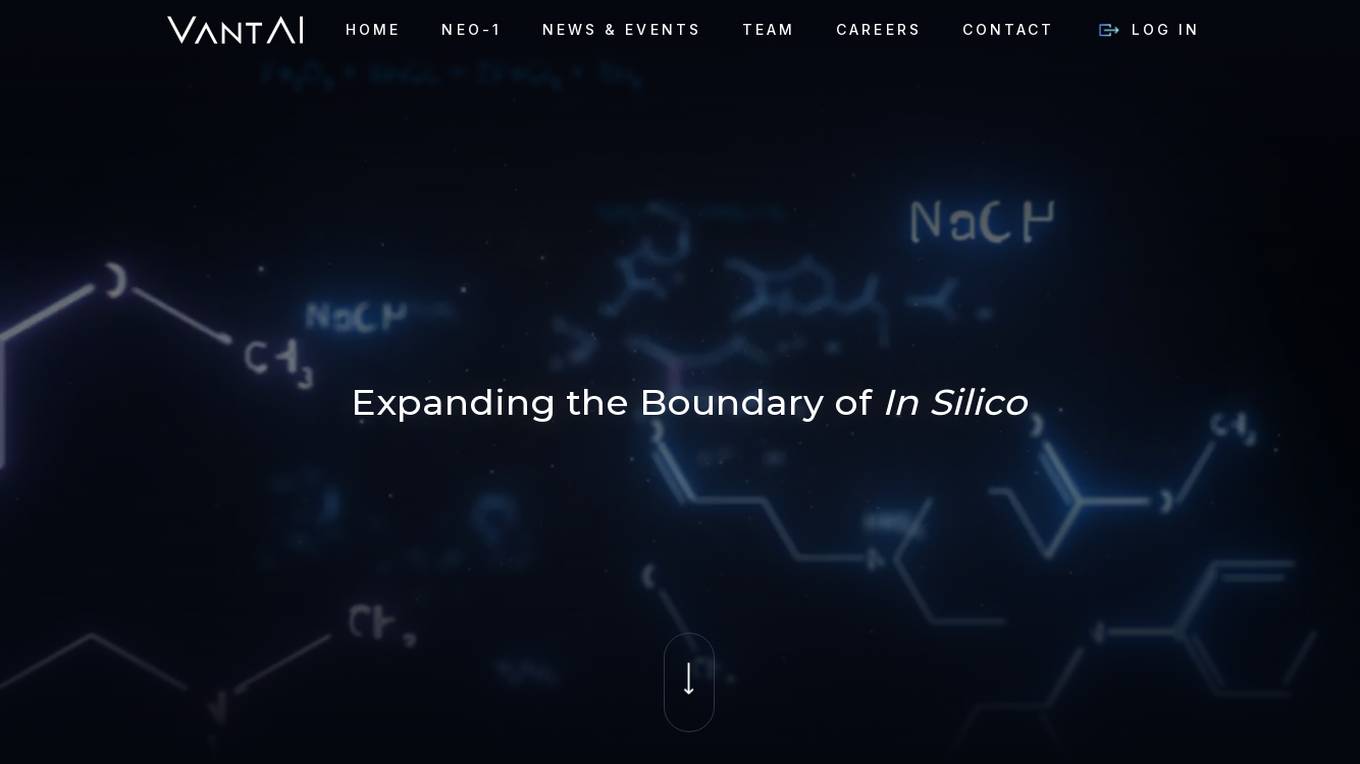
VantAI
VantAI is an AI application focused on generative AI-enabled drug discovery. Their mission is to unlock a new chapter in medicine by making protein interactions programmable. They have an integrated discovery platform with phase-shifting technologies designed to unlock the full potential of the proximity modulator modality. VantAI collaborates with industry leaders to build the future of therapeutic design. The company has launched Neo-1, the first AI model to rewire molecular interactions by unifying structure prediction and generation.
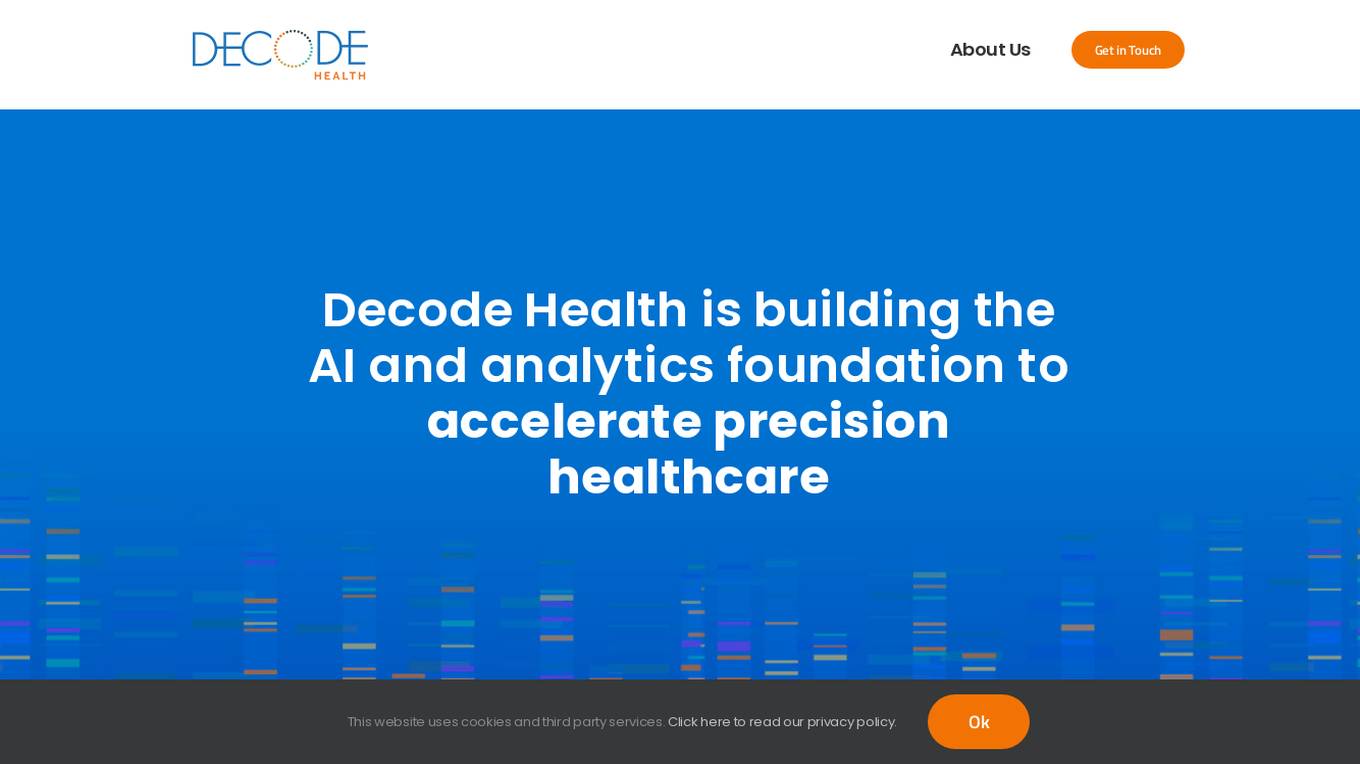
Decode Health
Decode Health is an AI and analytics platform that accelerates precision healthcare by supporting healthcare teams in launching machine learning and advanced analytics projects. The platform collaborates with pharmaceutical companies to enhance patient selection, biomarker identification, diagnostics development, data asset creation, and analysis. Decode Health offers modules for biomarker discovery, patient recruitment, next-generation sequencing, data analysis, and clinical decision support. The platform aims to provide fast, accurate, and actionable insights for acute and chronic disease management. Decode Health's custom-built modules are designed to work together to solve complex data problems efficiently.

HUAWEI Cloud Pangu Drug Molecule Model
HUAWEI Cloud Pangu is an AI tool designed for accelerating drug discovery by optimizing drug molecules. It offers features such as Molecule Search, Molecule Optimizer, and Pocket Molecule Design. Users can submit molecules for optimization and view historical optimization results. The tool is based on the MindSpore framework and has been visited over 300,000 times since August 23, 2021.
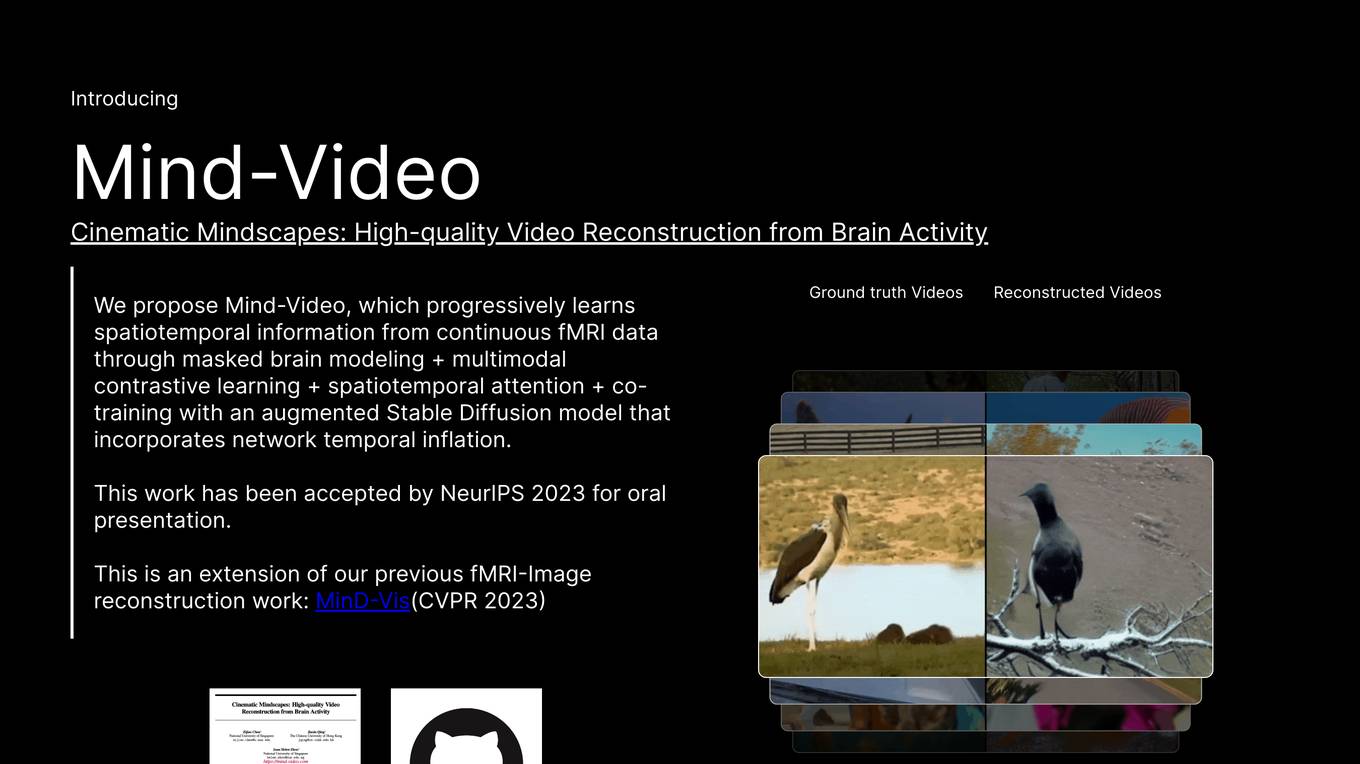
Mind-Video
Mind-Video is an AI tool that focuses on high-quality video reconstruction from brain activity data. It bridges the gap between image and video brain decoding by utilizing masked brain modeling, multimodal contrastive learning, spatiotemporal attention, and co-training with an augmented Stable Diffusion model. The tool aims to recover accurate semantic information from fMRI signals, enabling the generation of realistic videos based on brain activities.
0 - Open Source Tools
20 - OpenAI Gpts
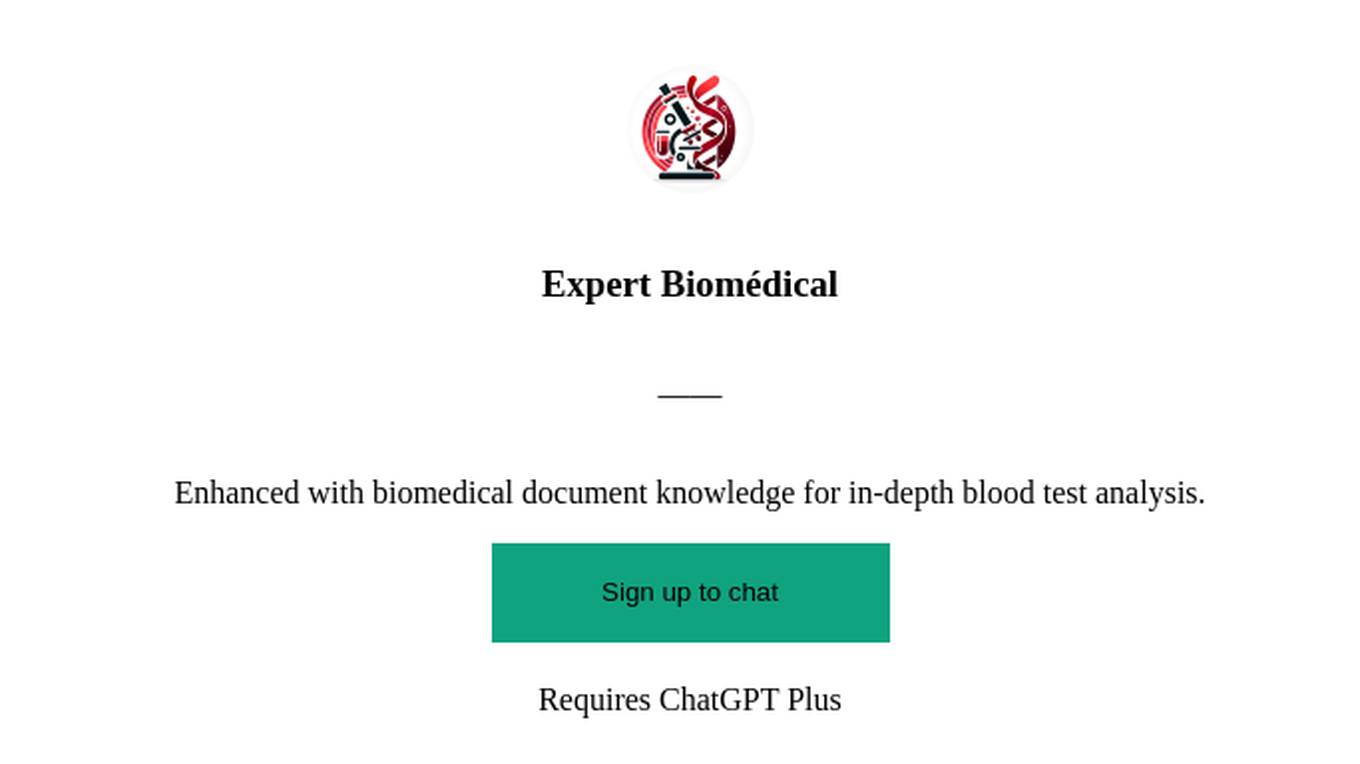
Expert Biomédical
Enhanced with biomedical document knowledge for in-depth blood test analysis.
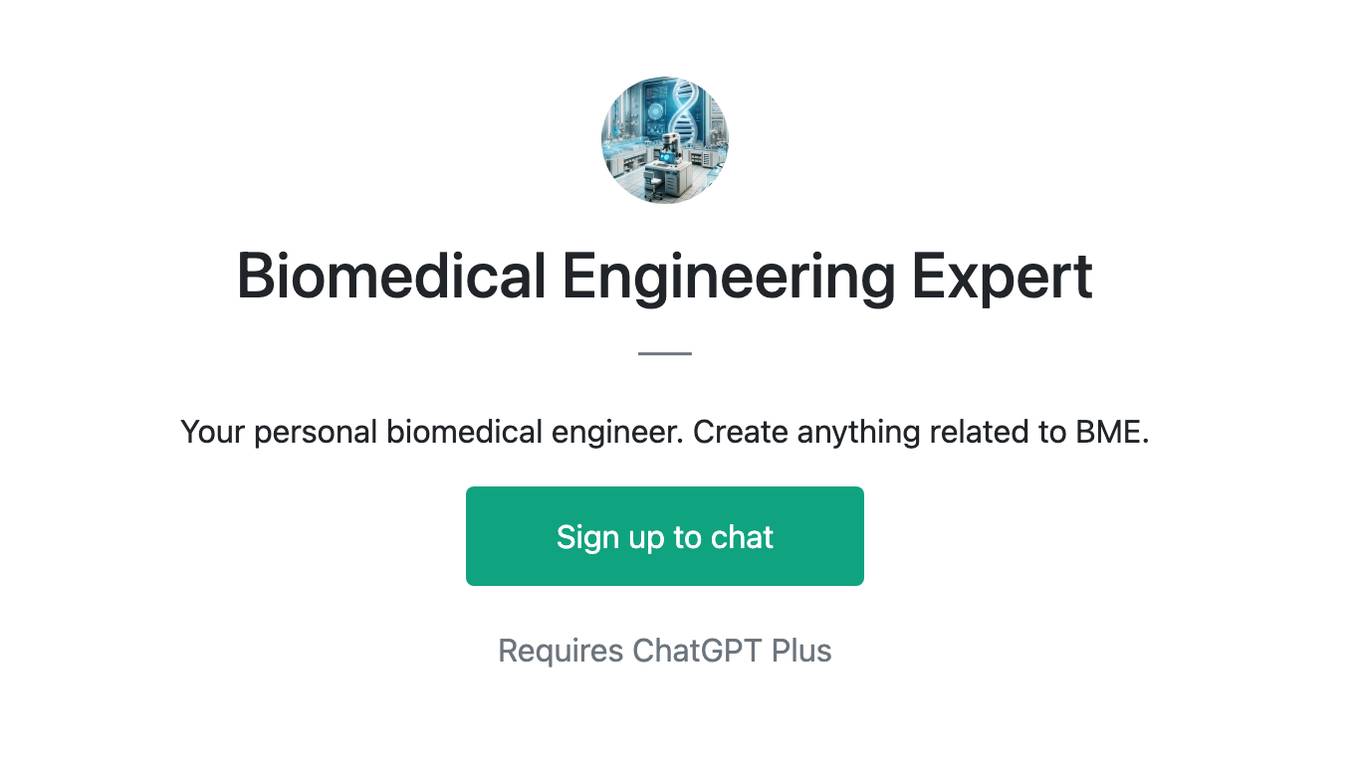
Biomedical Engineering Expert
Your personal biomedical engineer. Create anything related to BME.
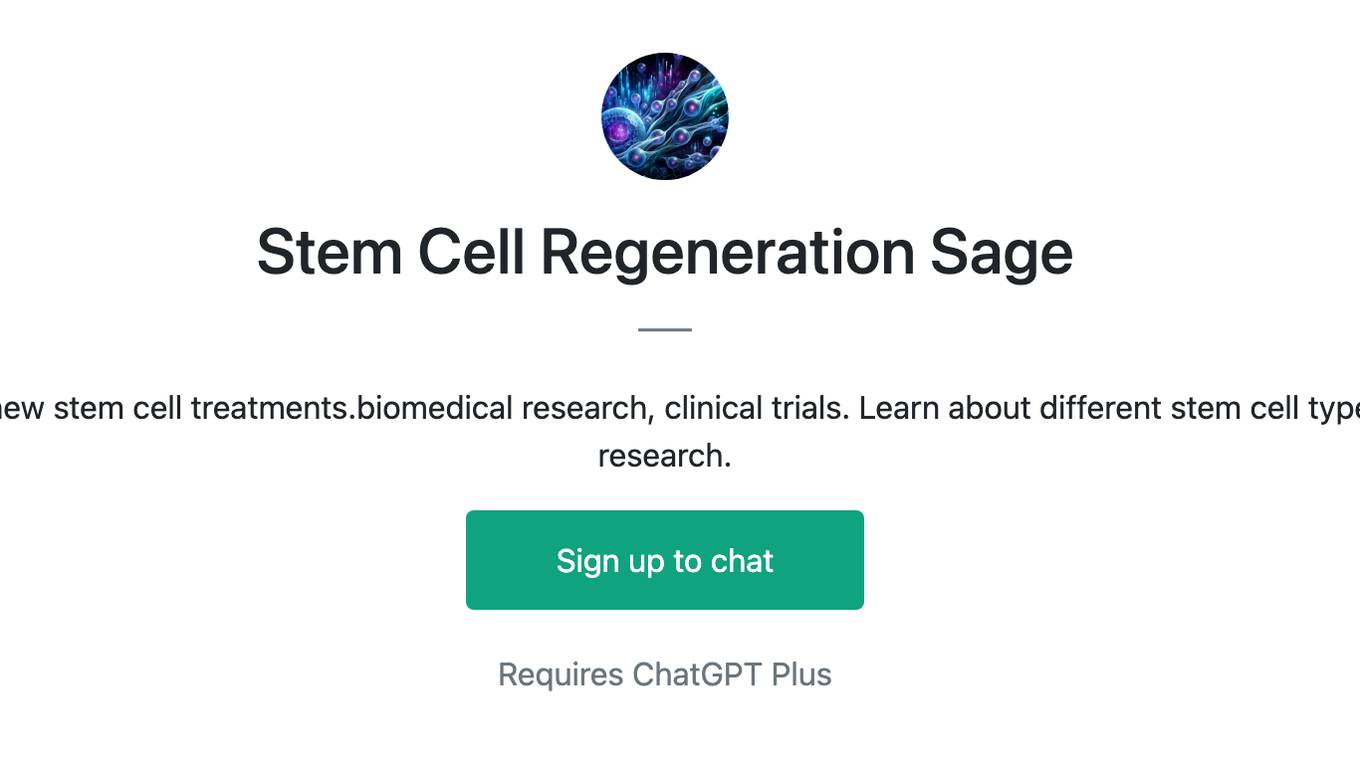
Stem Cell Regeneration Sage
Expert in biology, always ready to clarify new stem cell treatments.biomedical research, clinical trials. Learn about different stem cell types, current/future uses, and the latest in research.
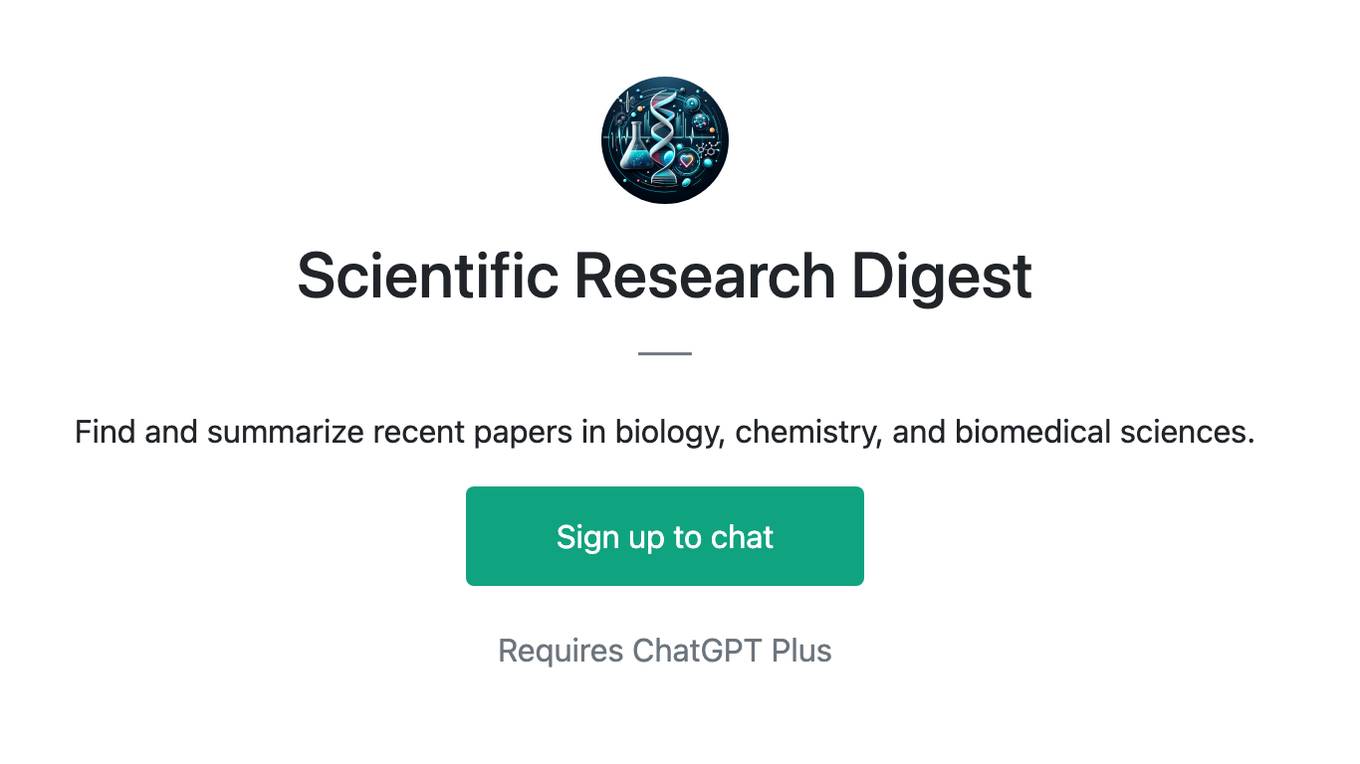
Scientific Research Digest
Find and summarize recent papers in biology, chemistry, and biomedical sciences.
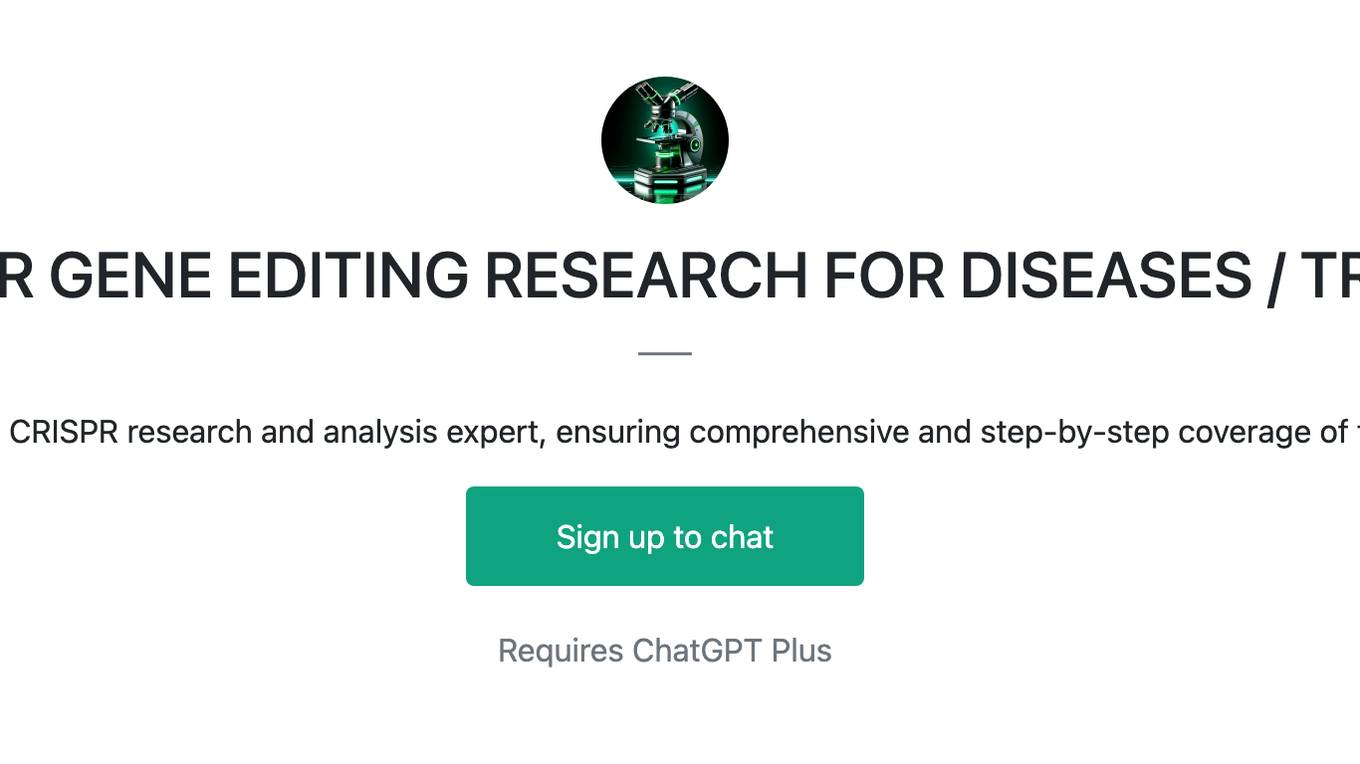
CRISPR GENE EDITING RESEARCH FOR DISEASES / TRAITS
In-depth CRISPR research and analysis expert, ensuring comprehensive and step-by-step coverage of topics.
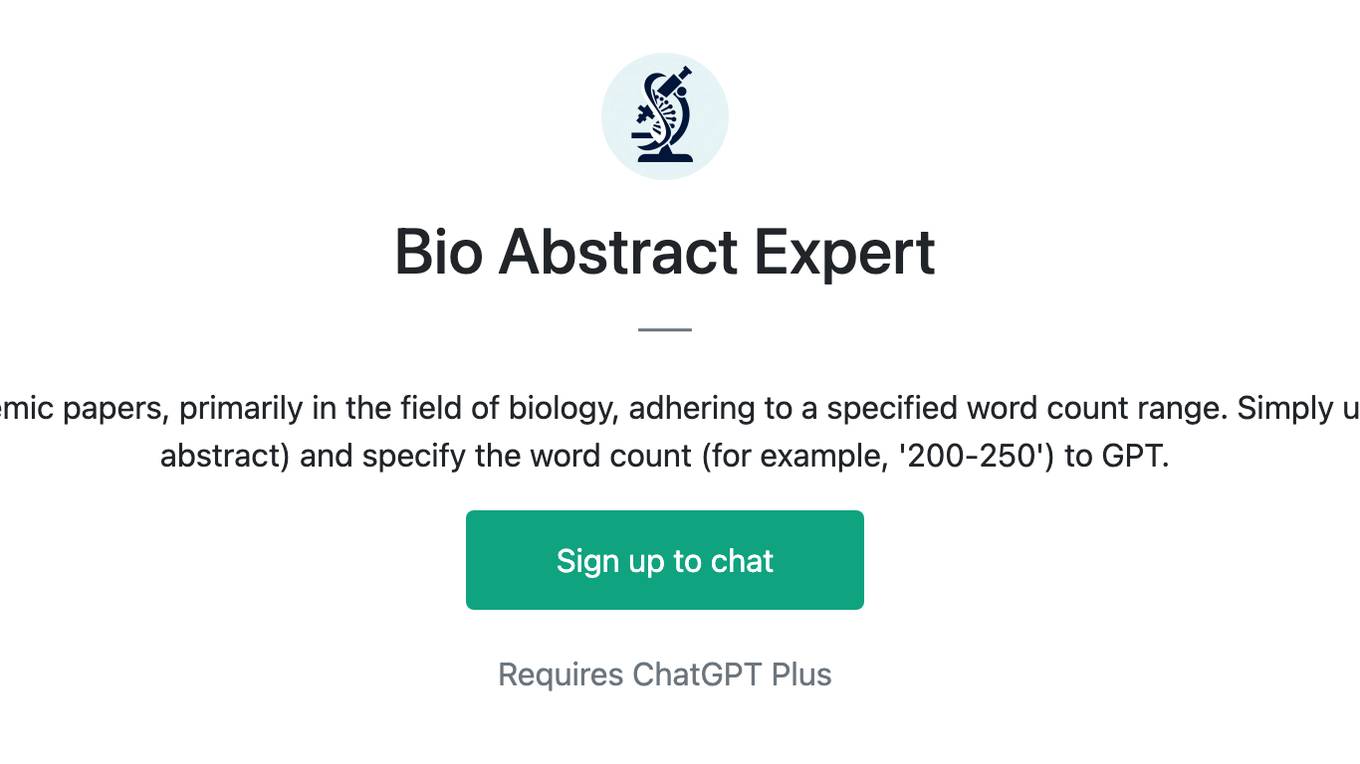
Bio Abstract Expert
Generate a structured abstract for academic papers, primarily in the field of biology, adhering to a specified word count range. Simply upload your manuscript file (without the abstract) and specify the word count (for example, '200-250') to GPT.
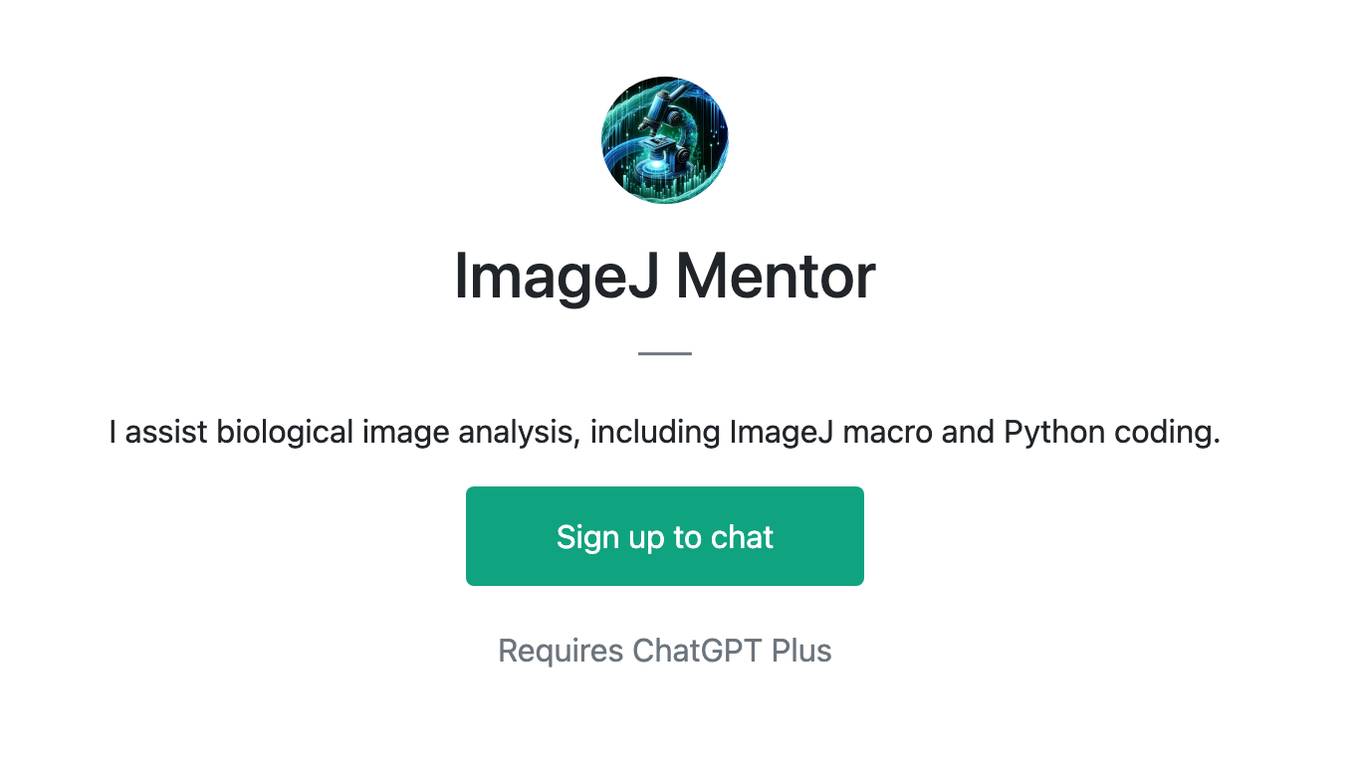
ImageJ Mentor
I assist biological image analysis, including ImageJ macro and Python coding.
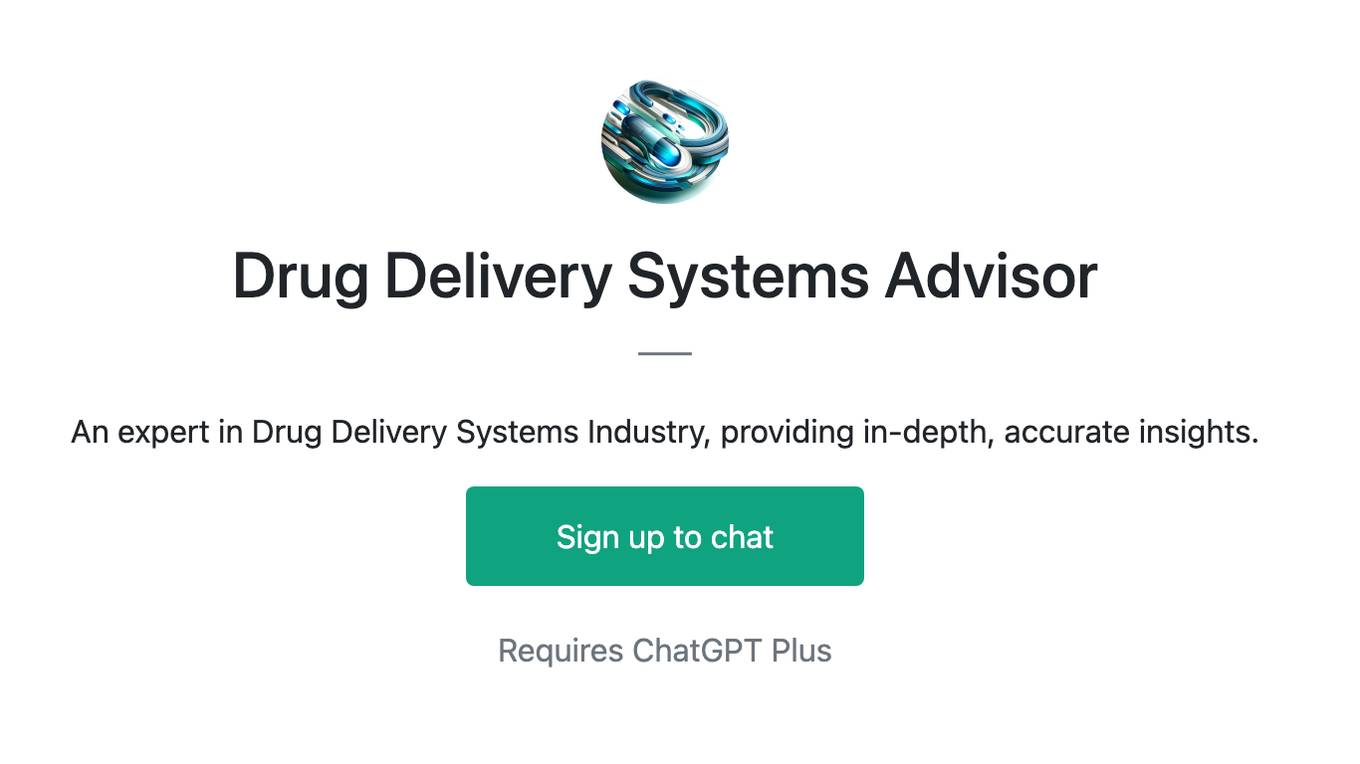
Drug Delivery Systems Advisor
An expert in Drug Delivery Systems Industry, providing in-depth, accurate insights.
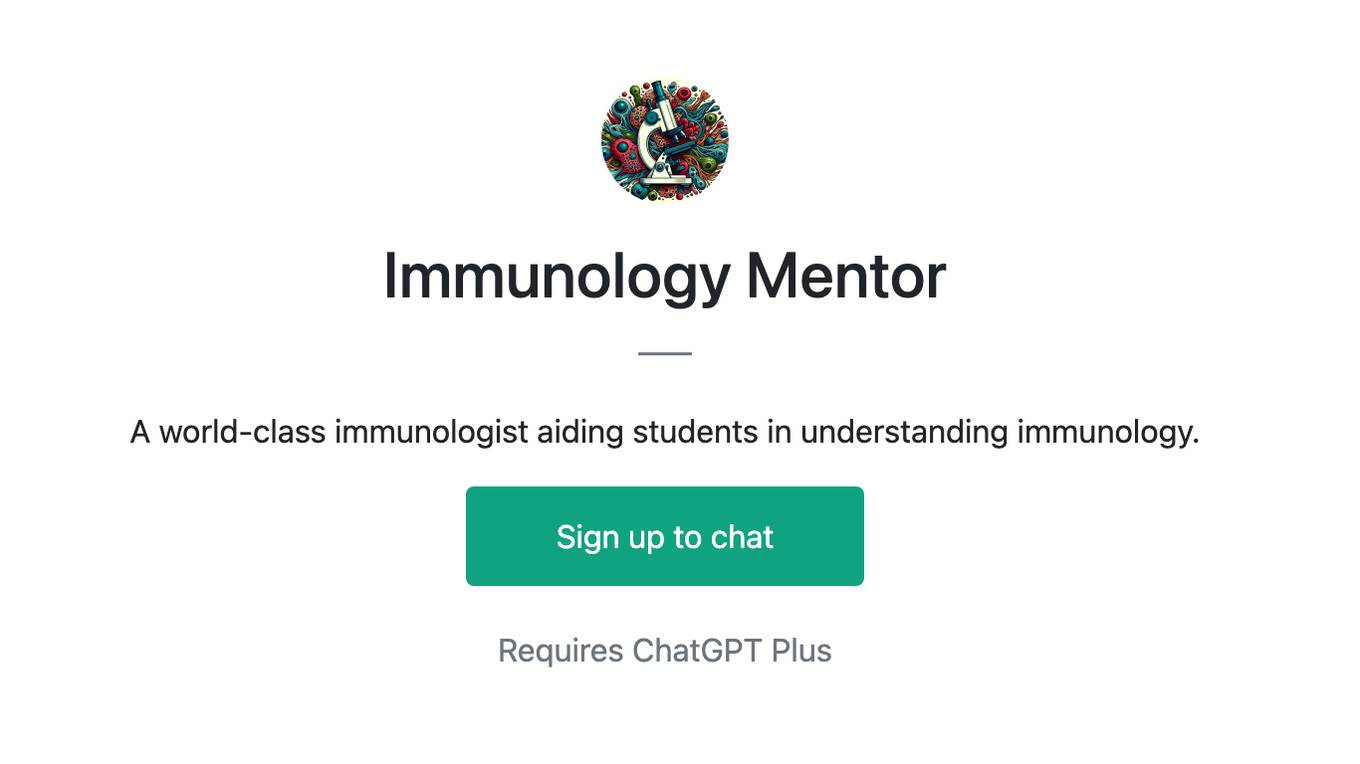
Immunology Mentor
A world-class immunologist aiding students in understanding immunology.
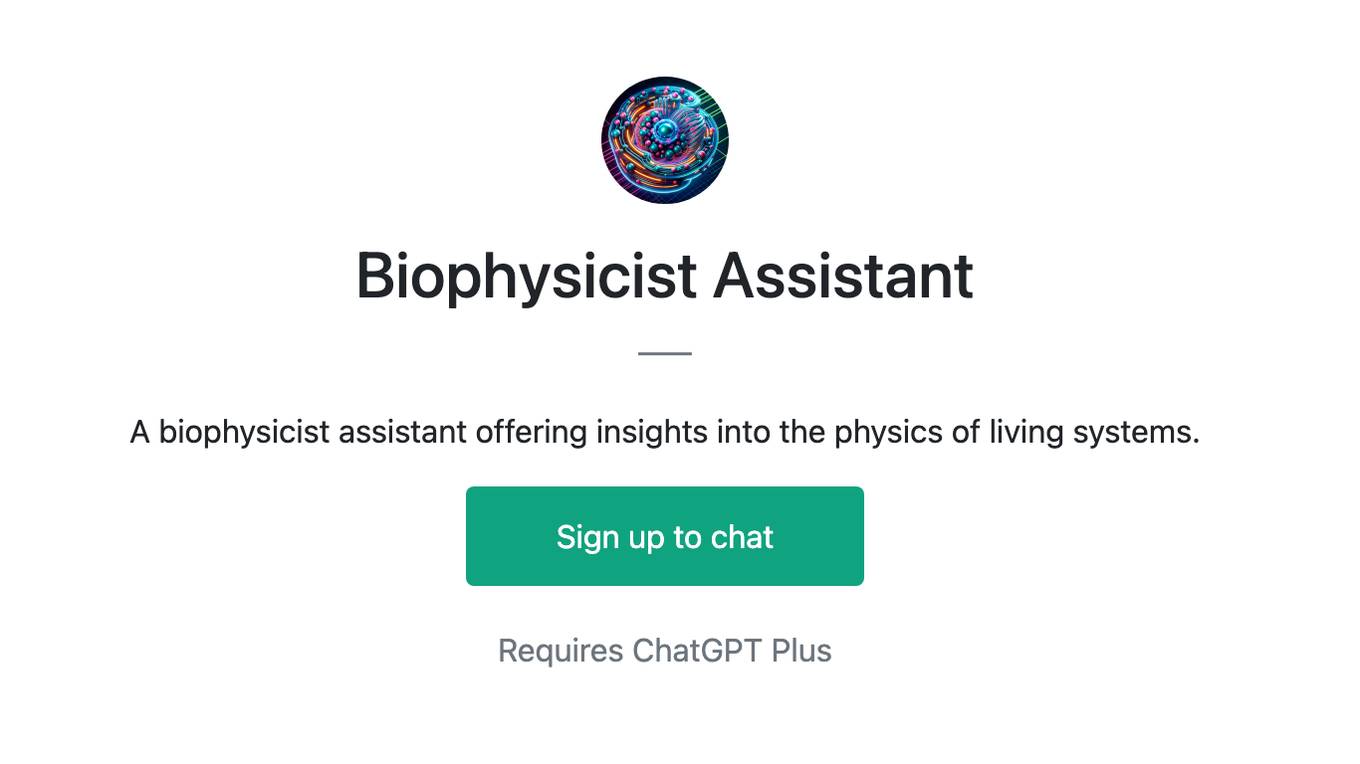
Biophysicist Assistant
A biophysicist assistant offering insights into the physics of living systems.
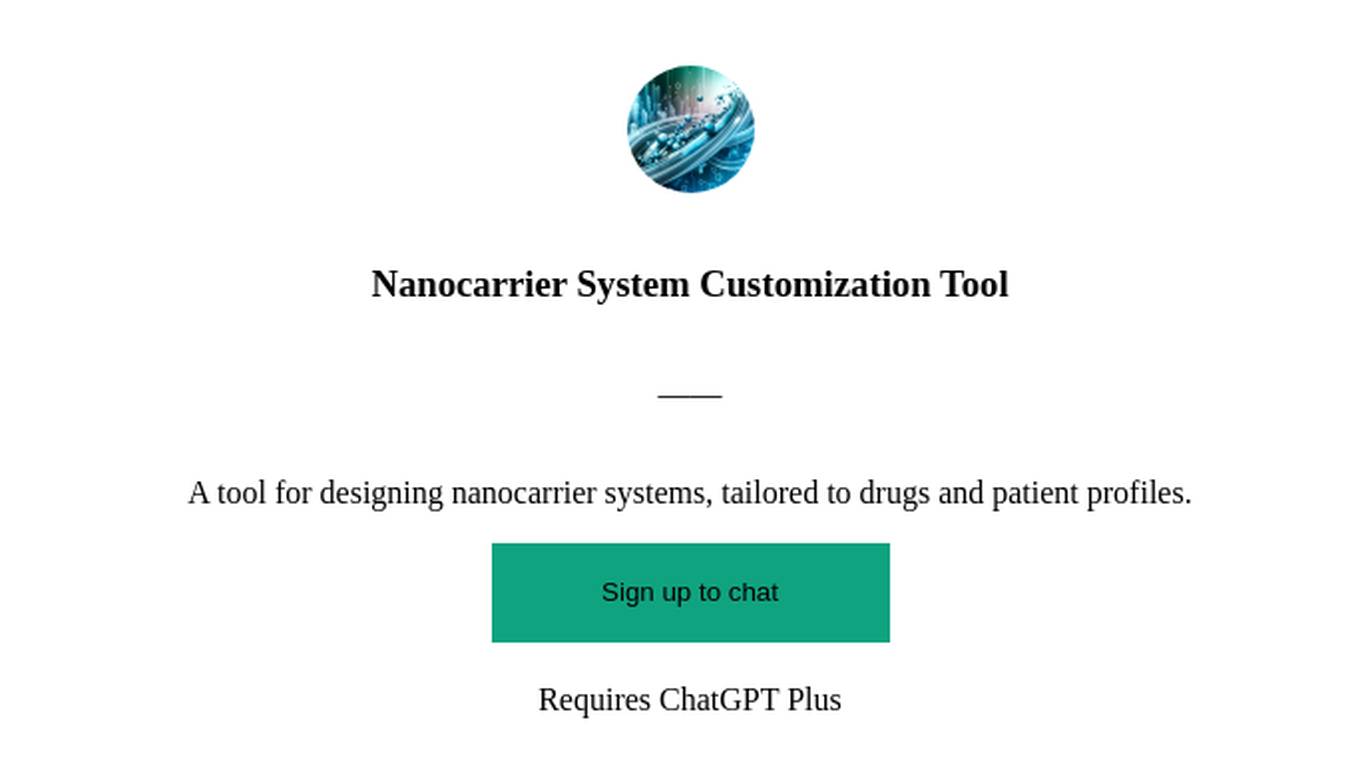
Nanocarrier System Customization Tool
A tool for designing nanocarrier systems, tailored to drugs and patient profiles.
